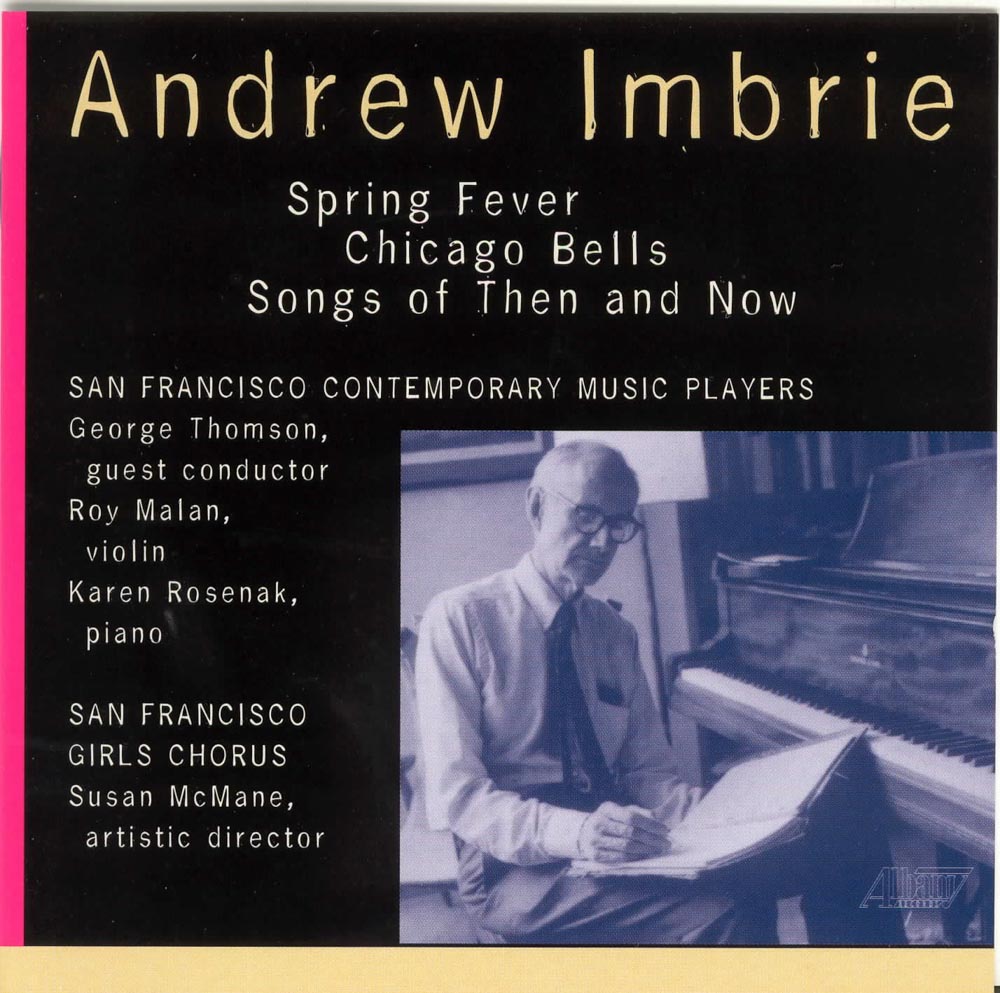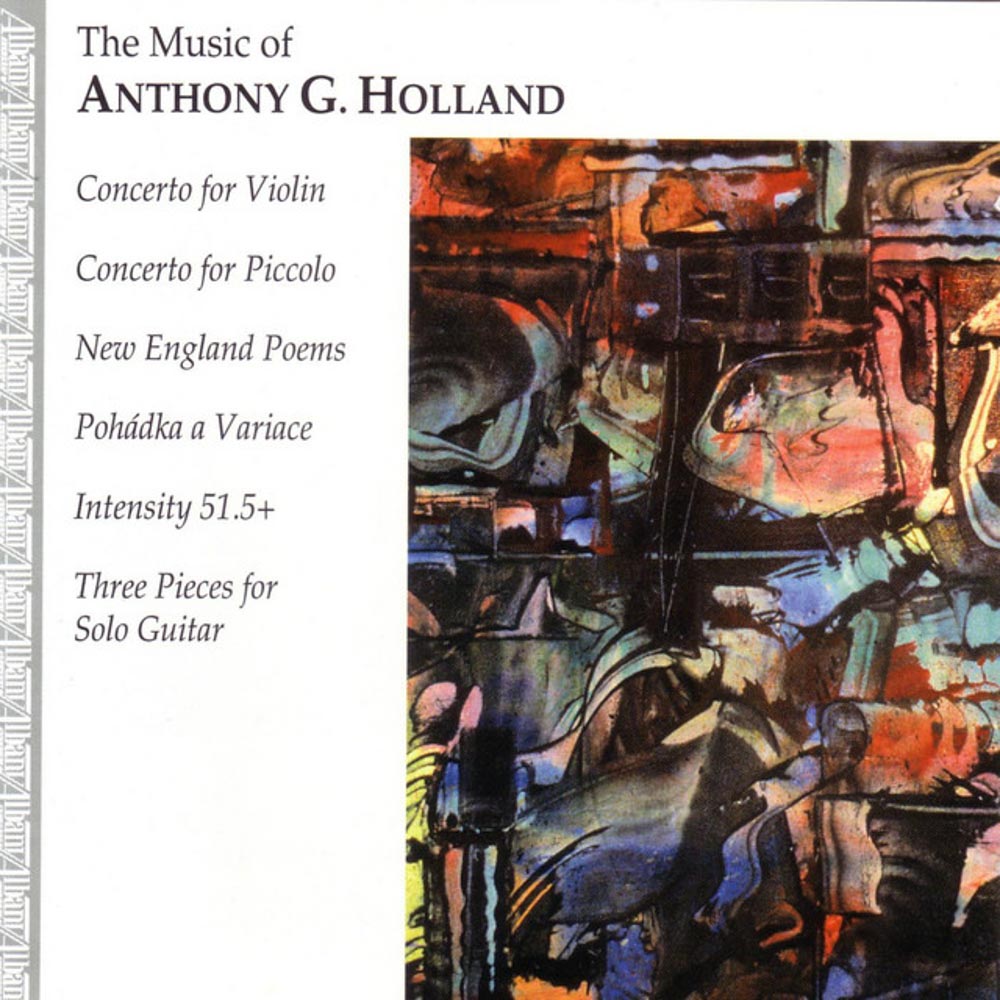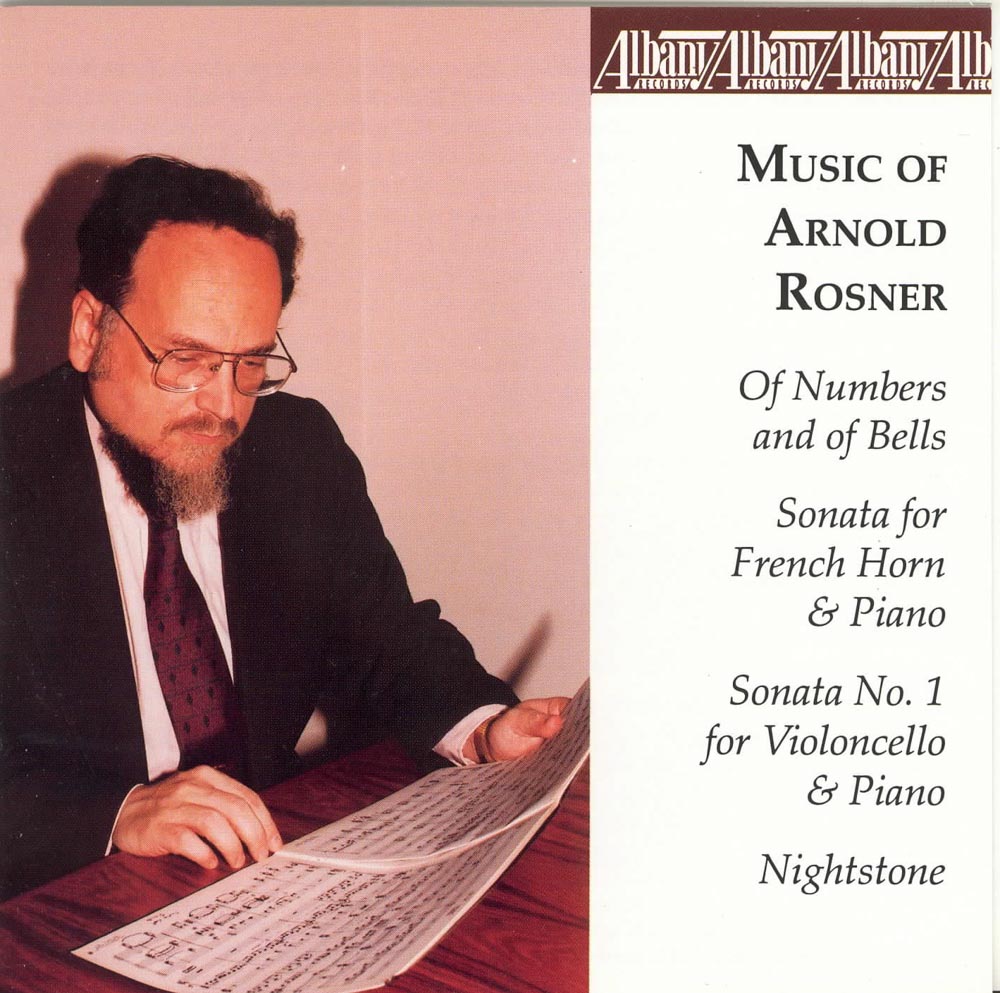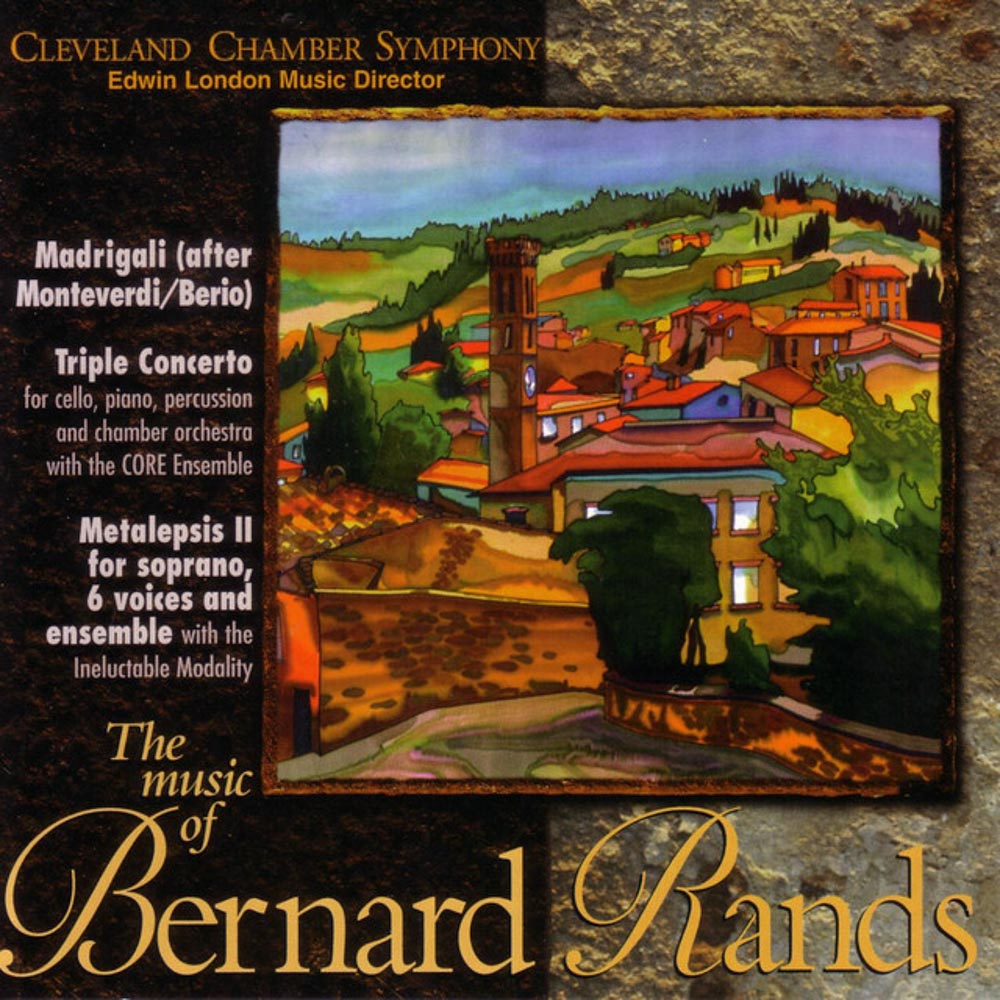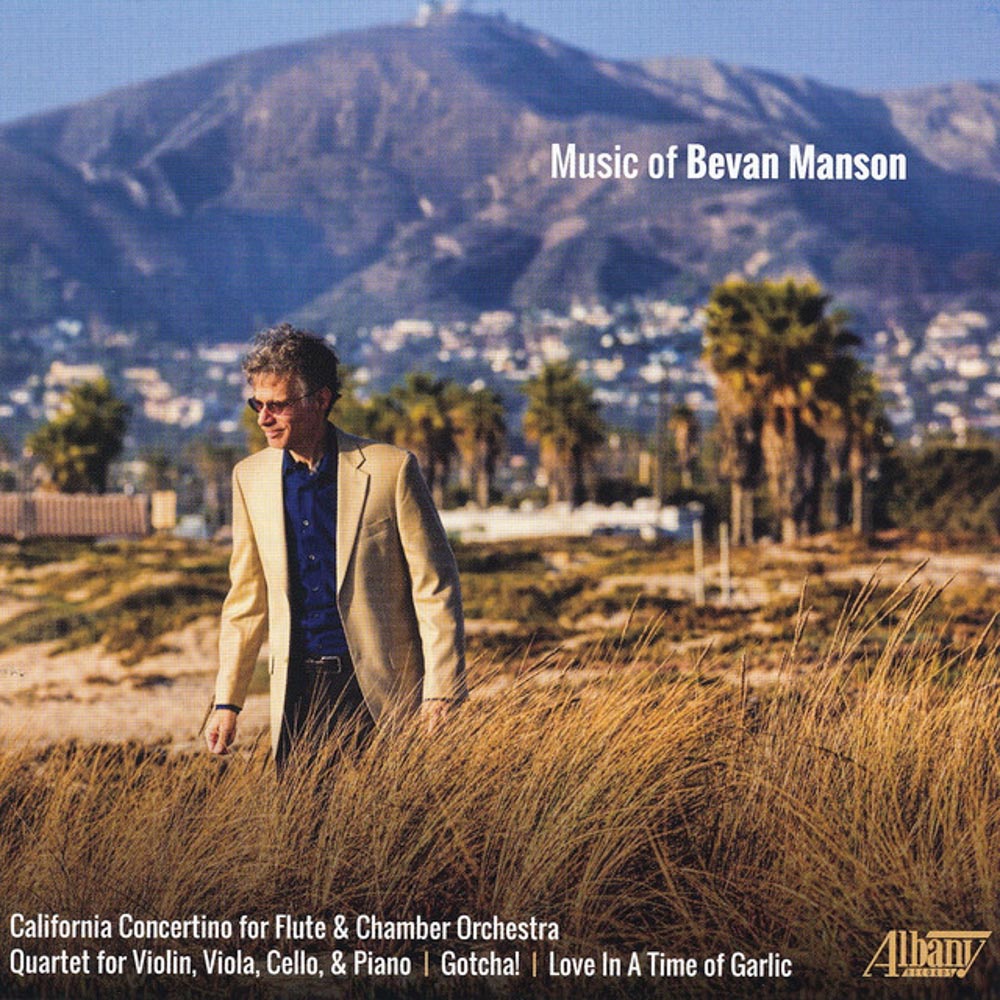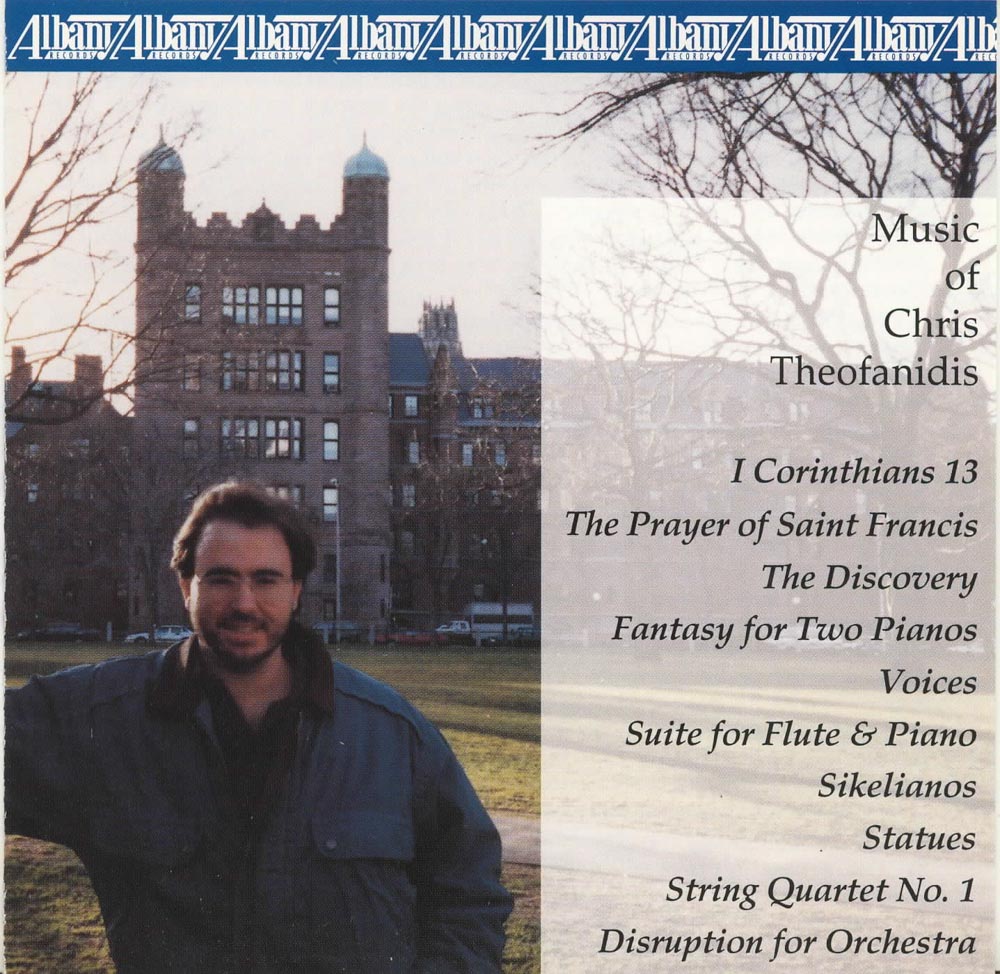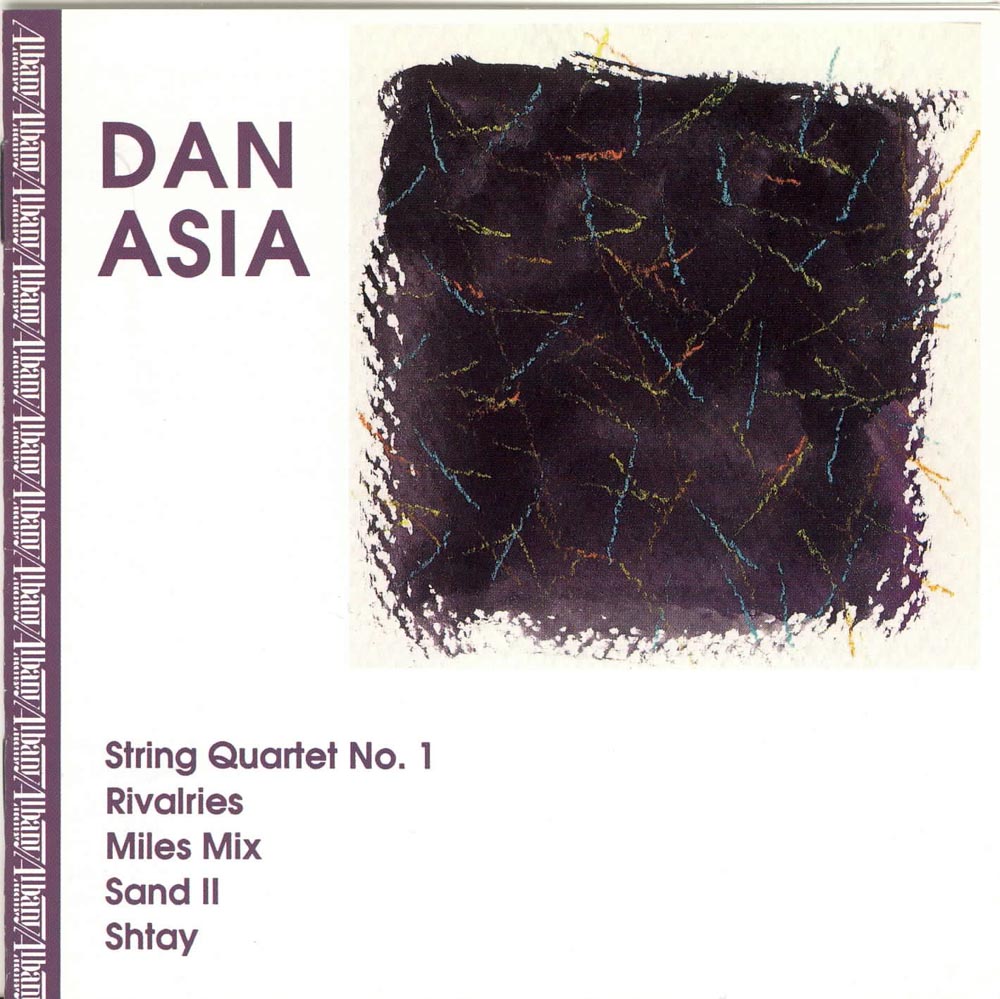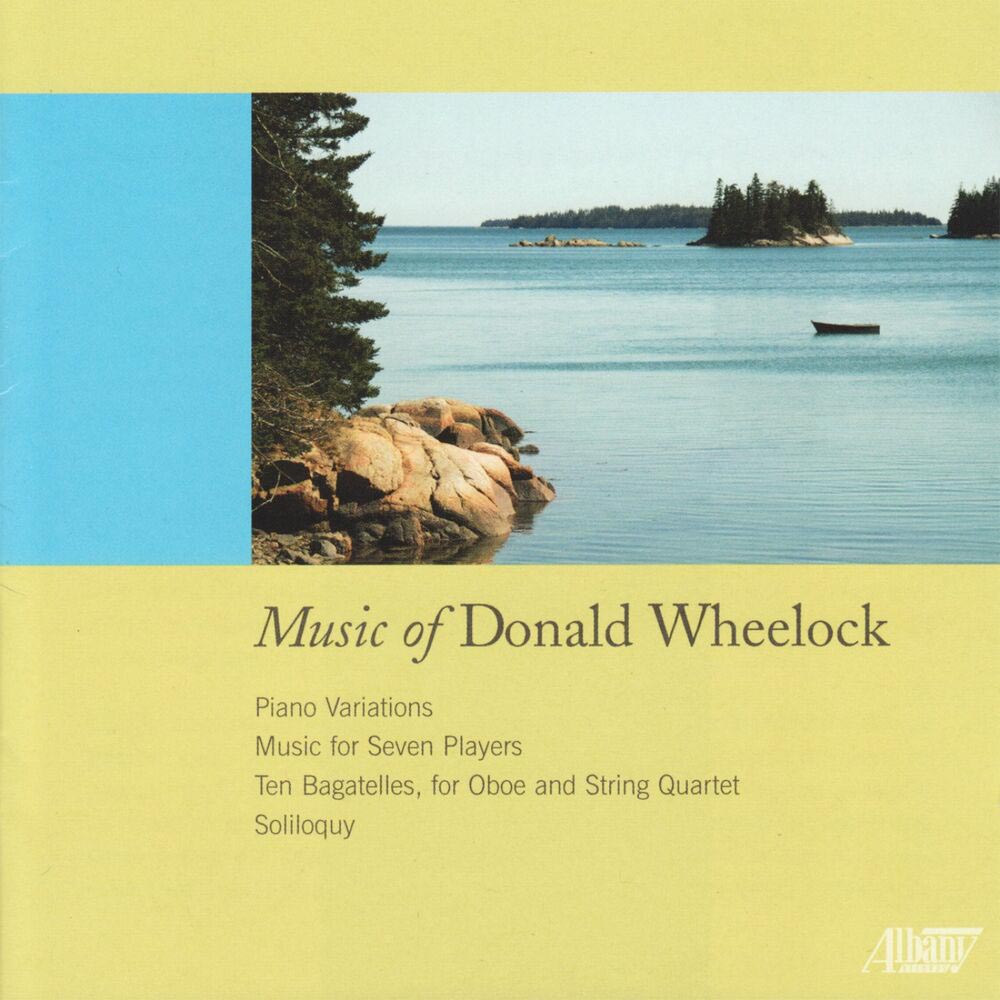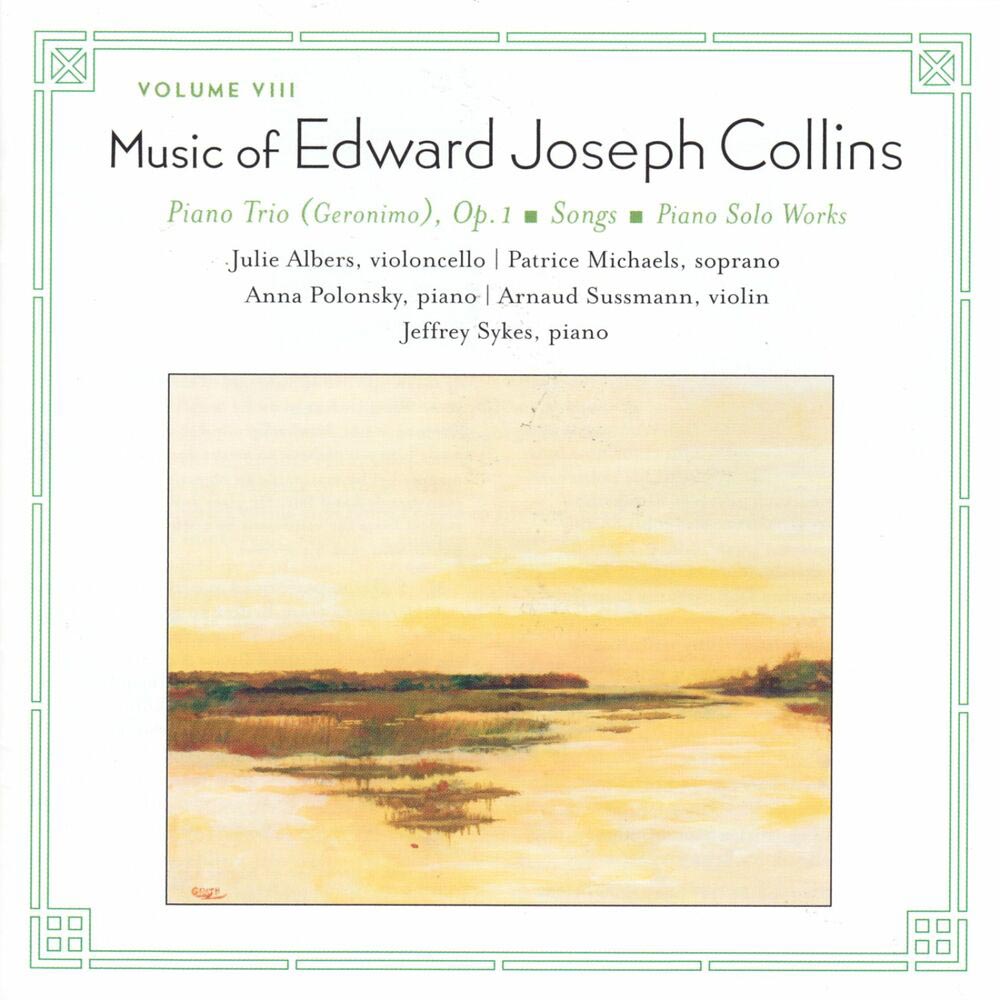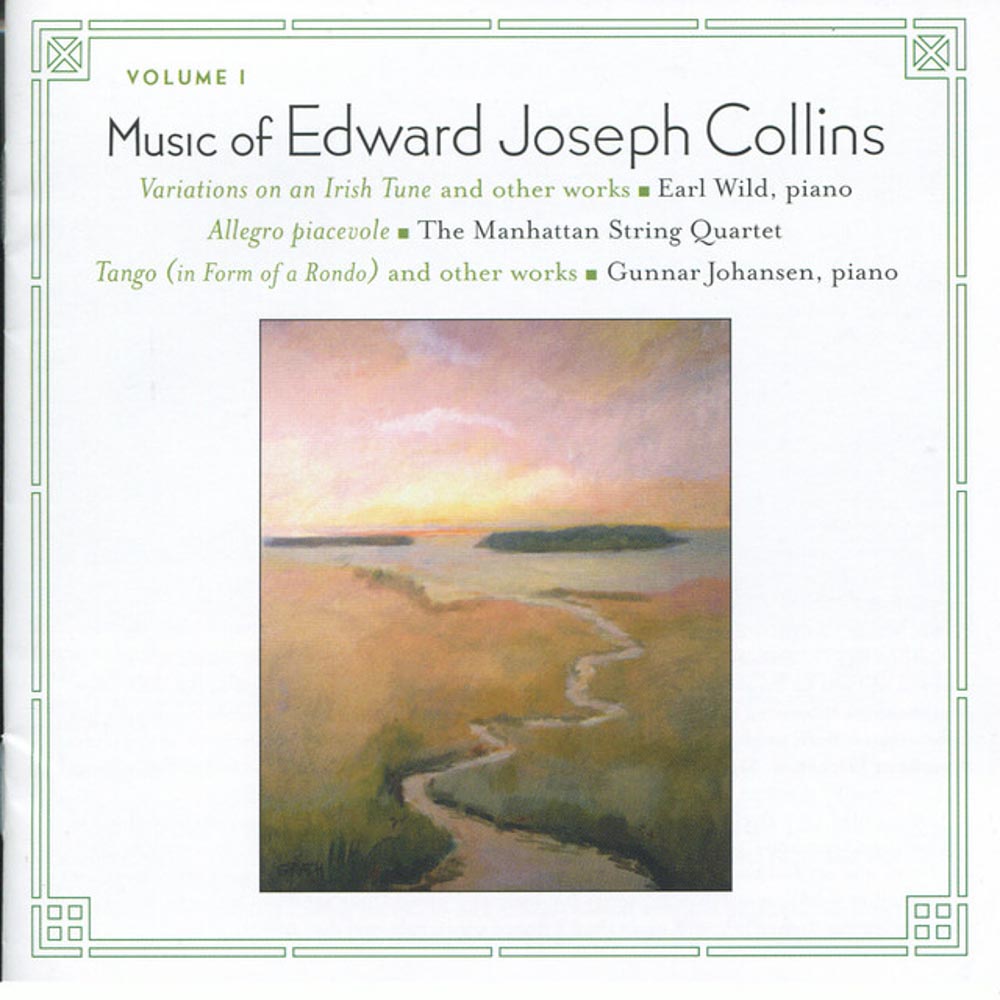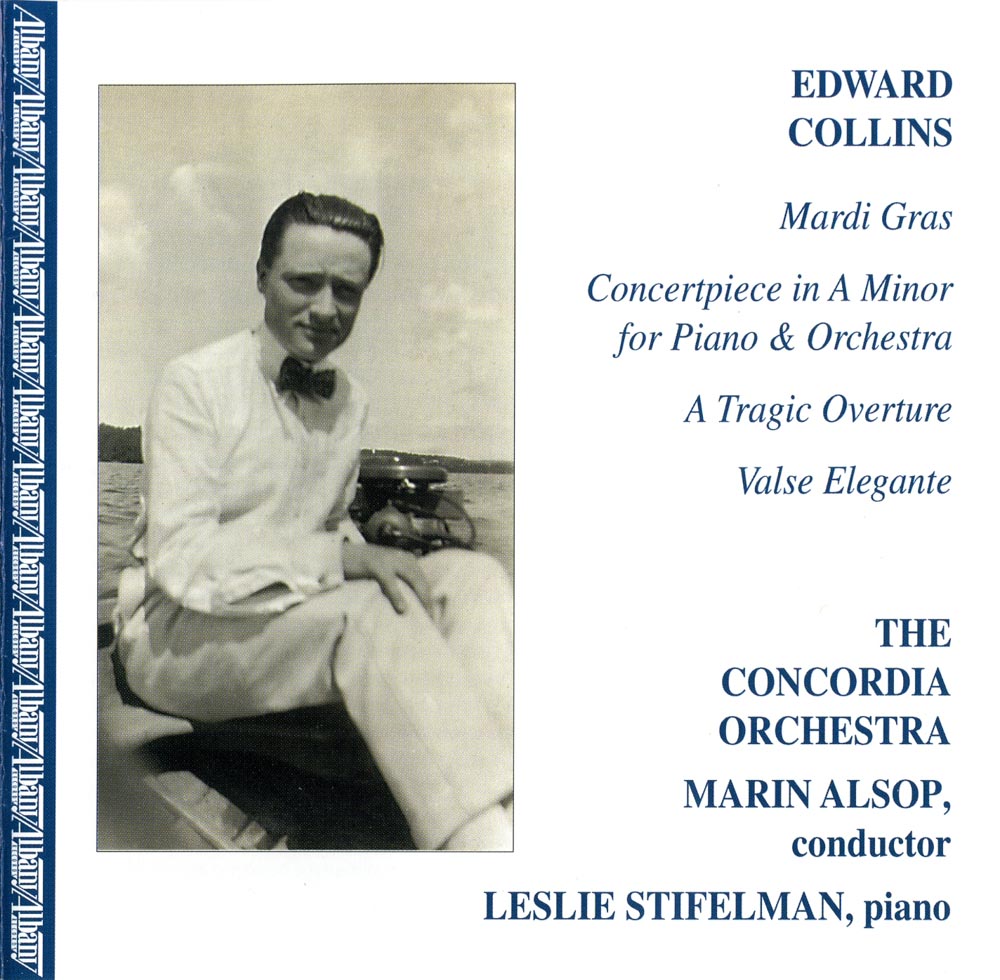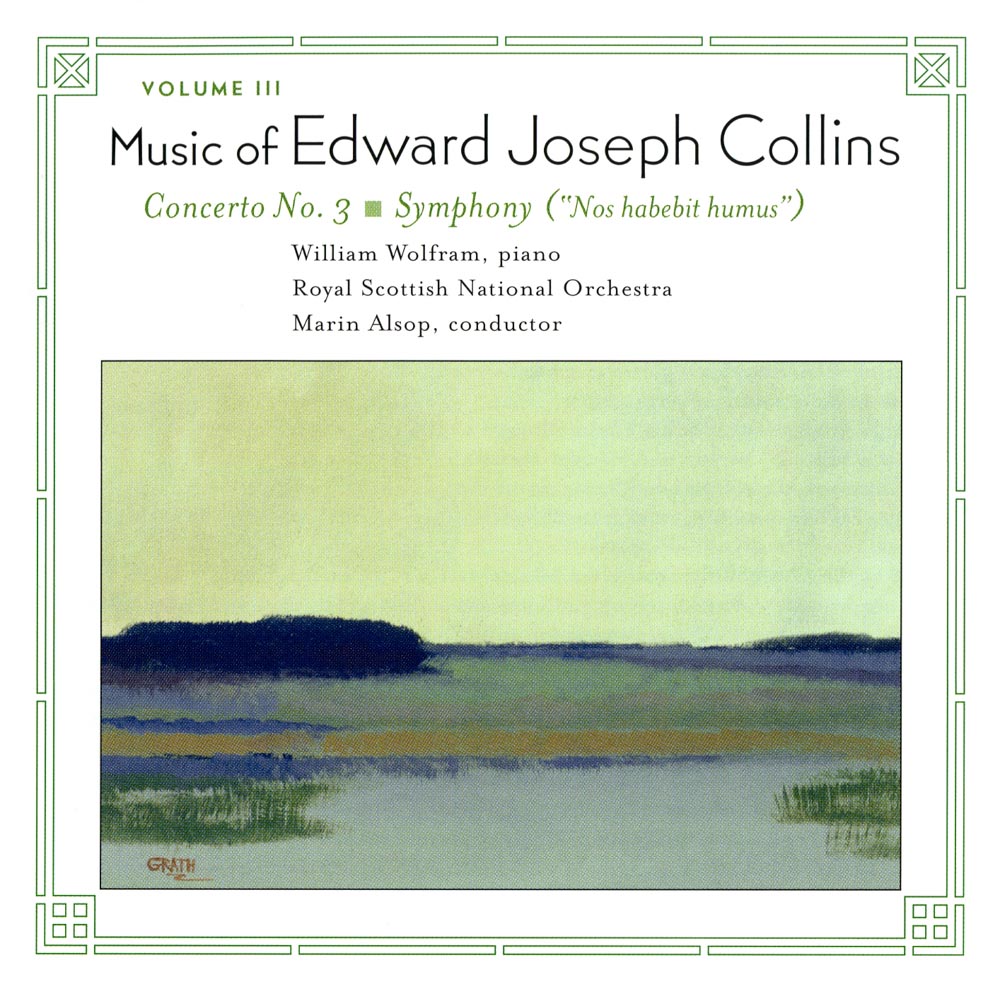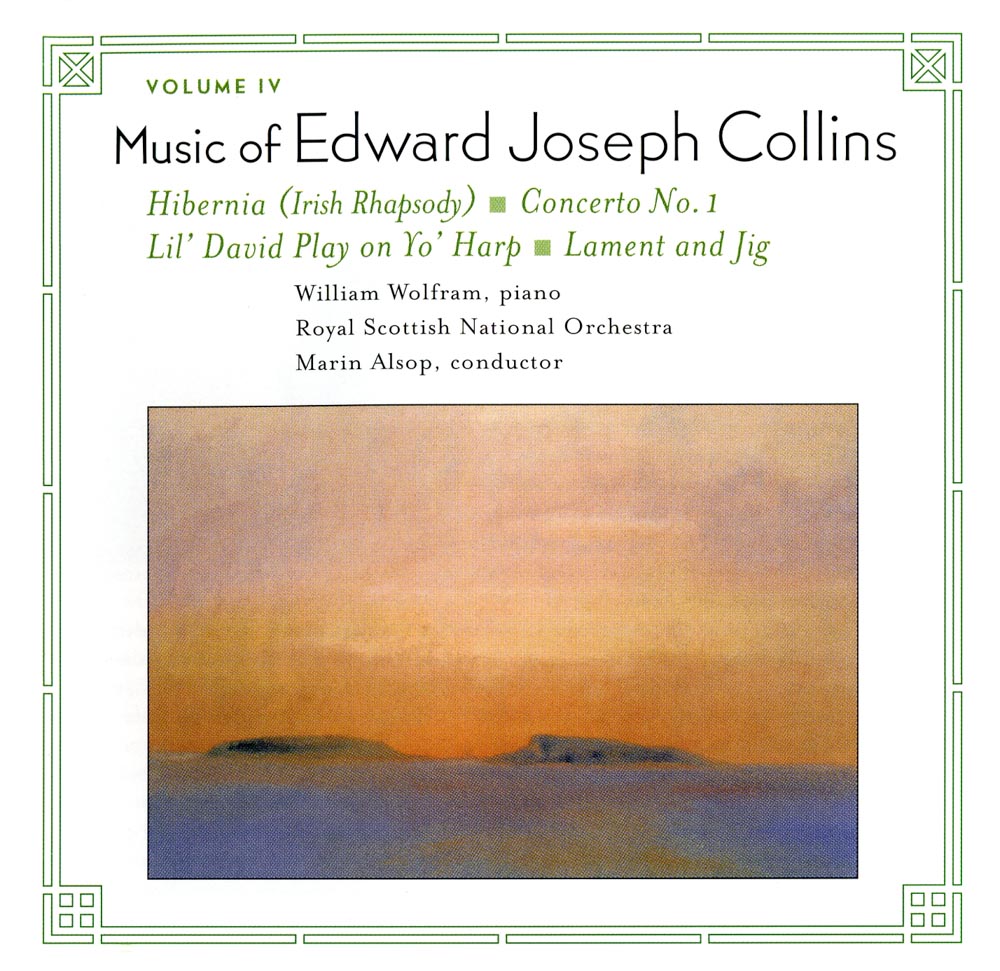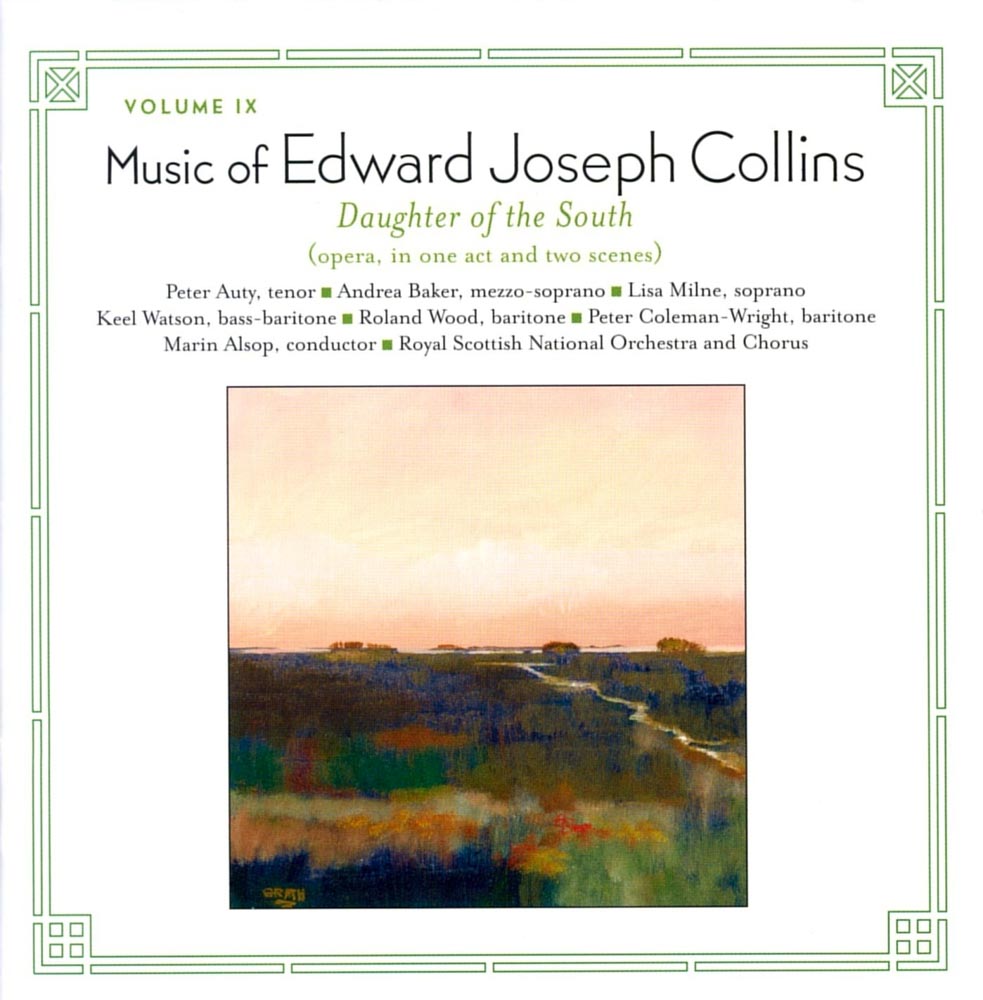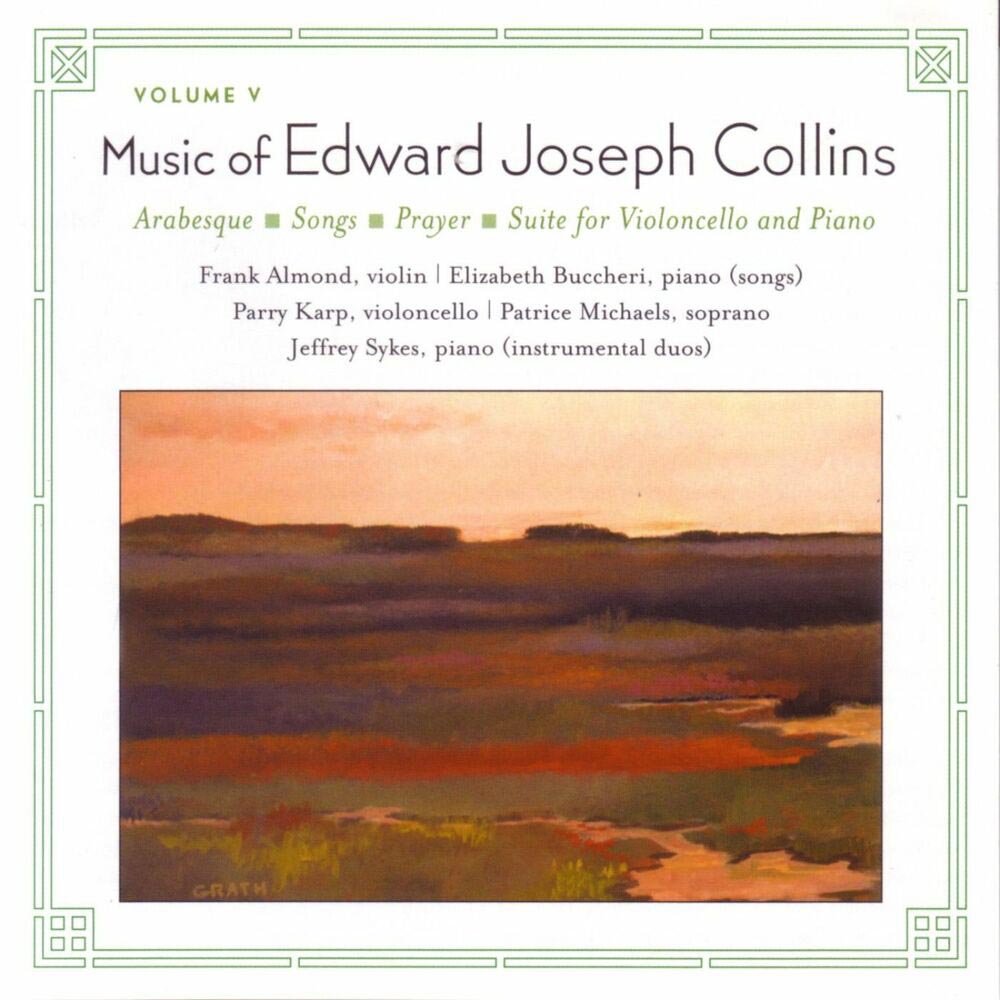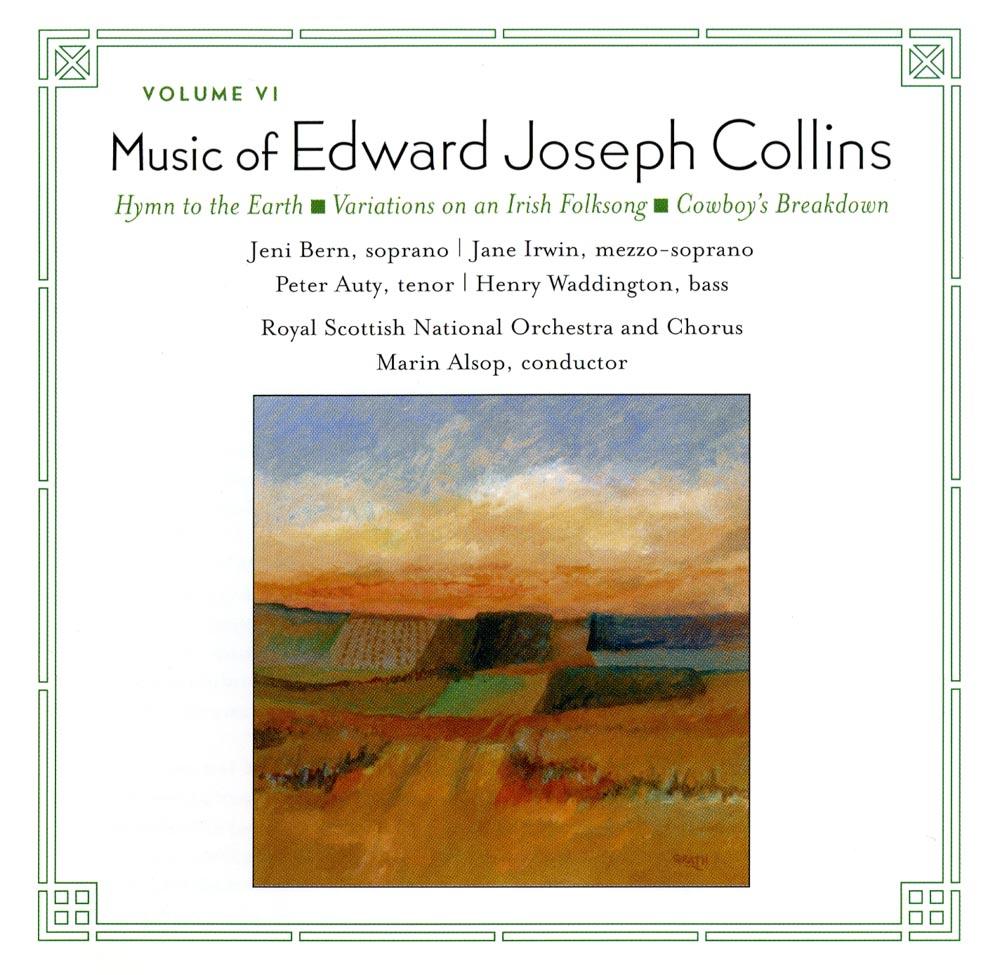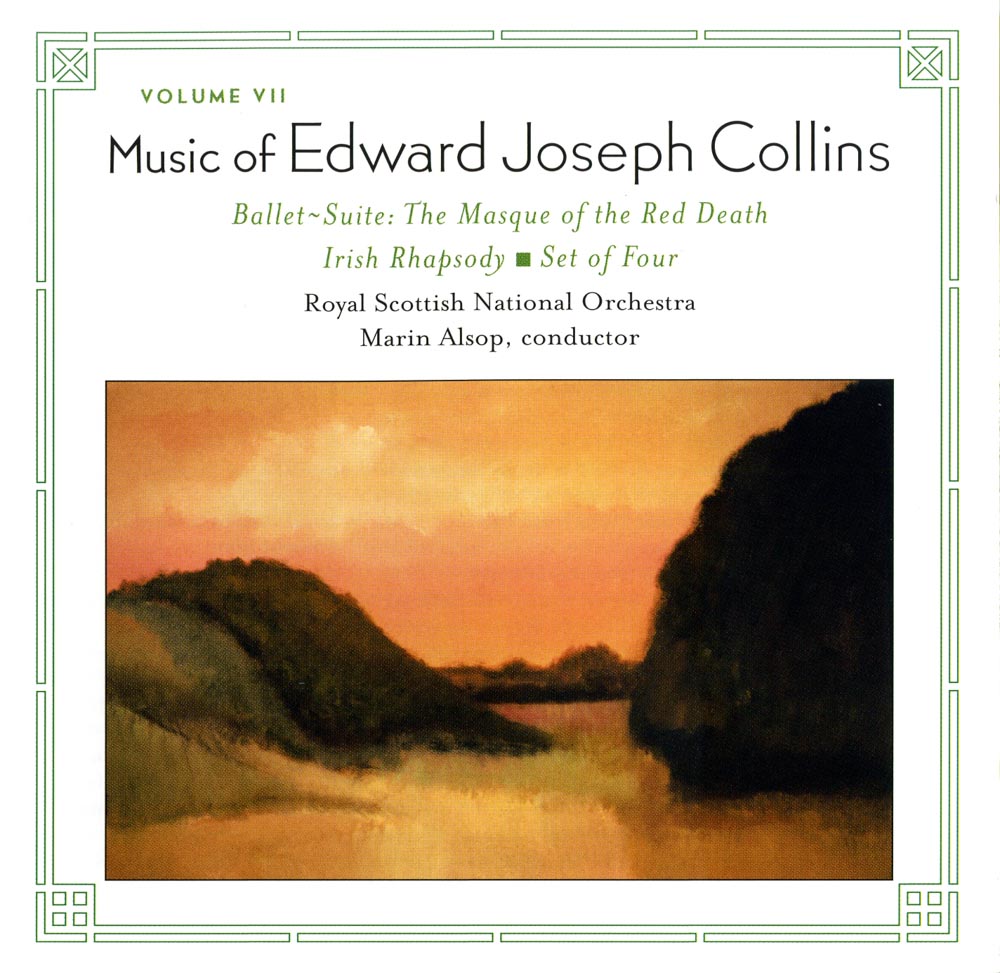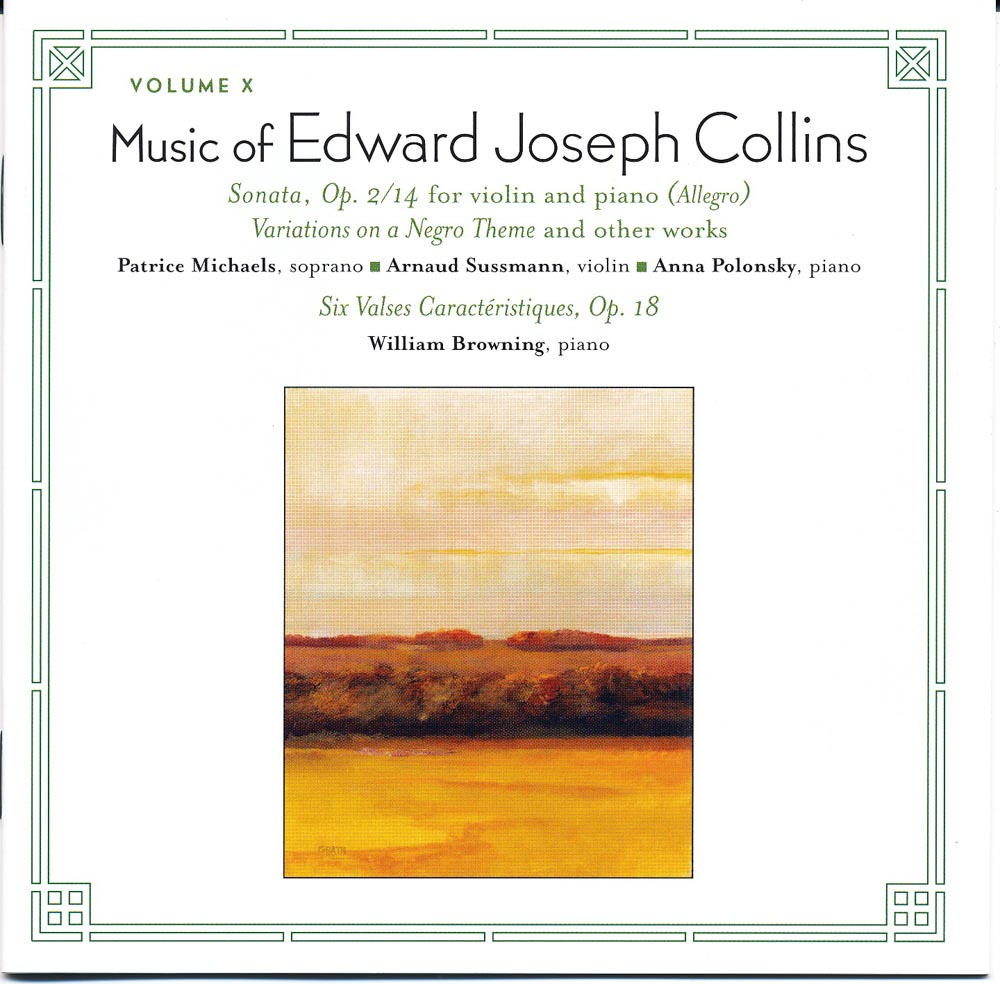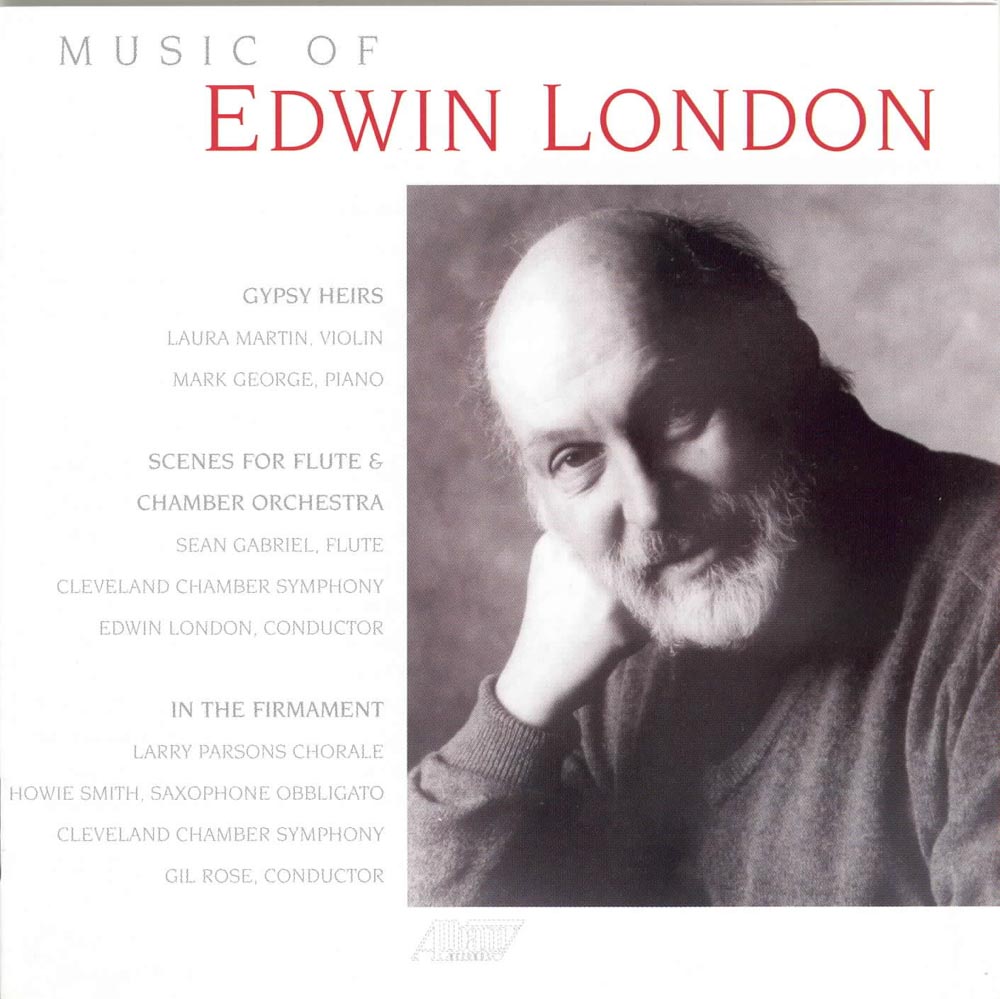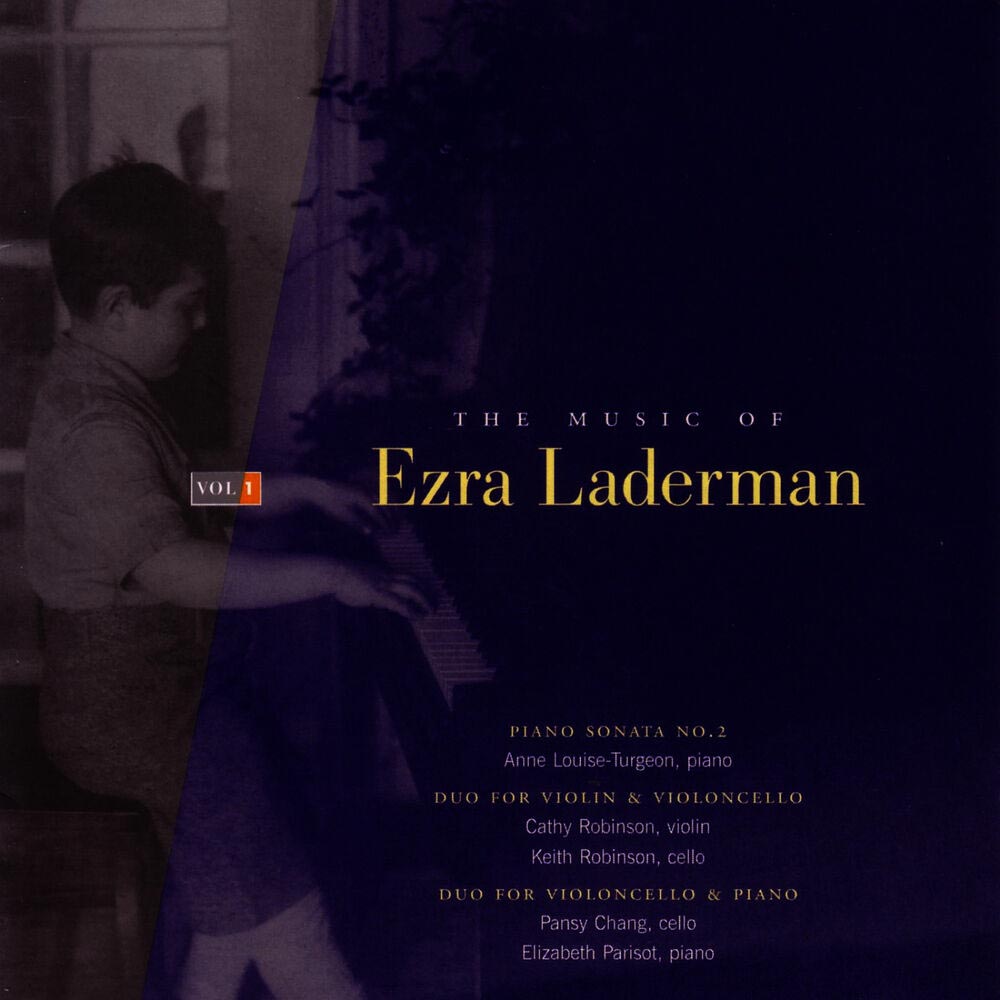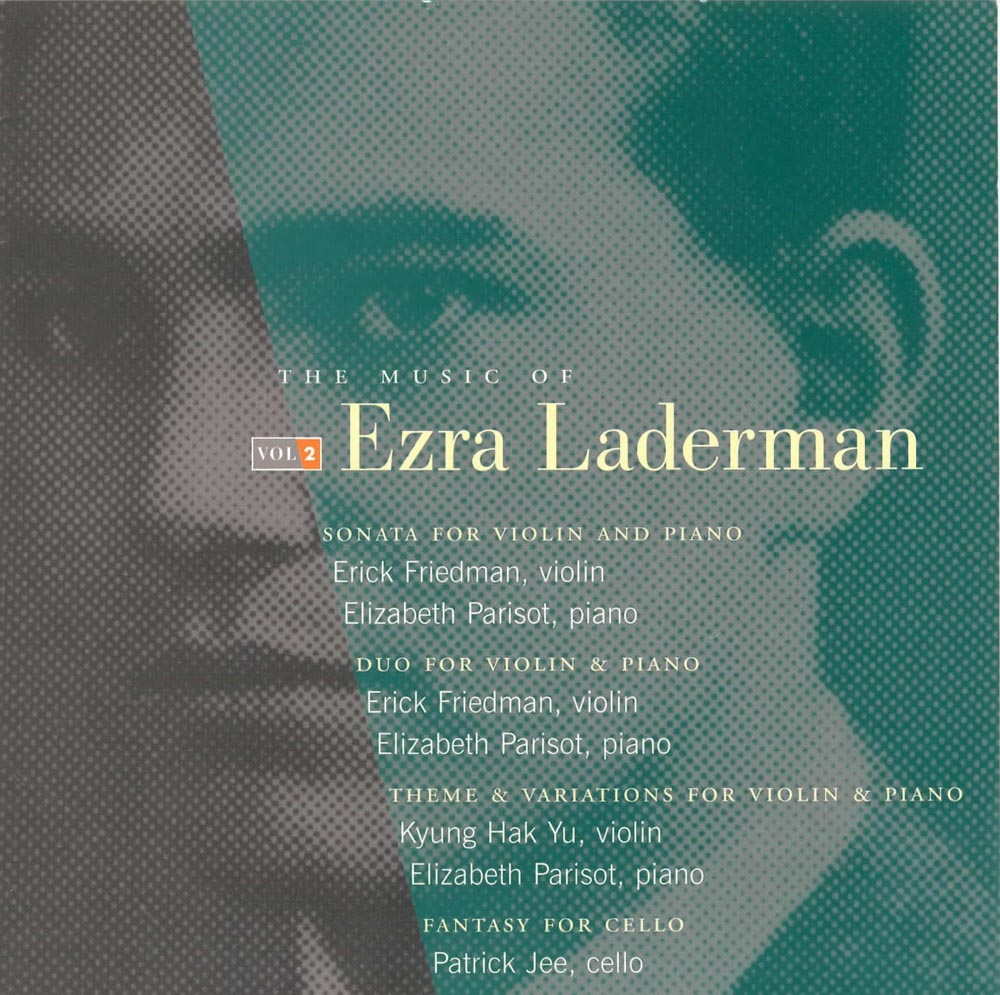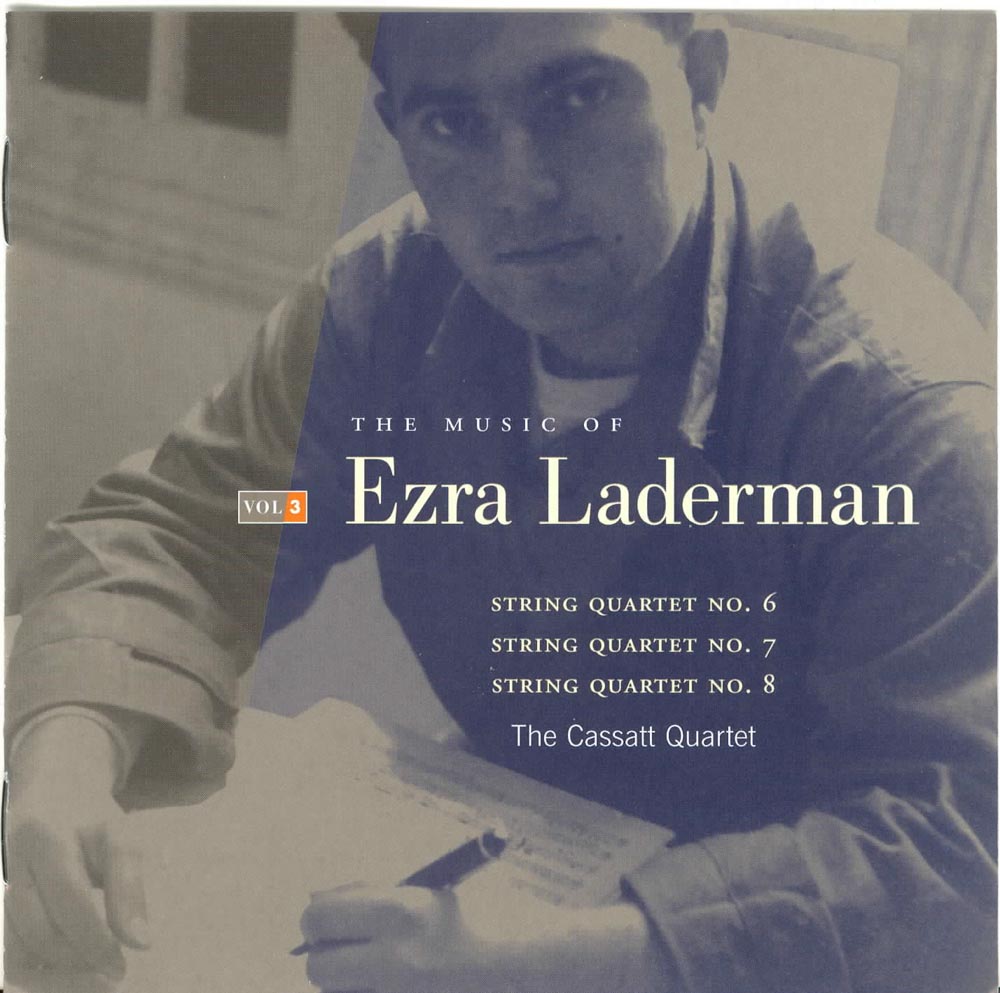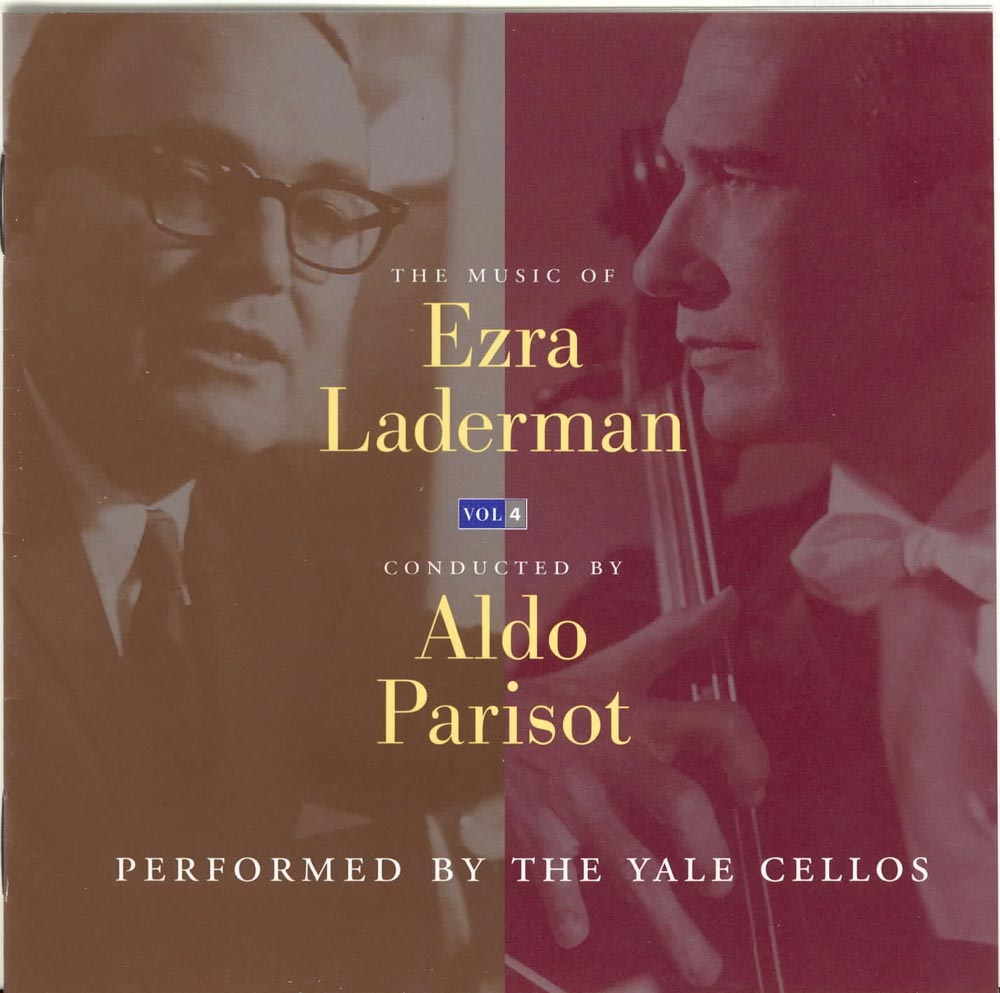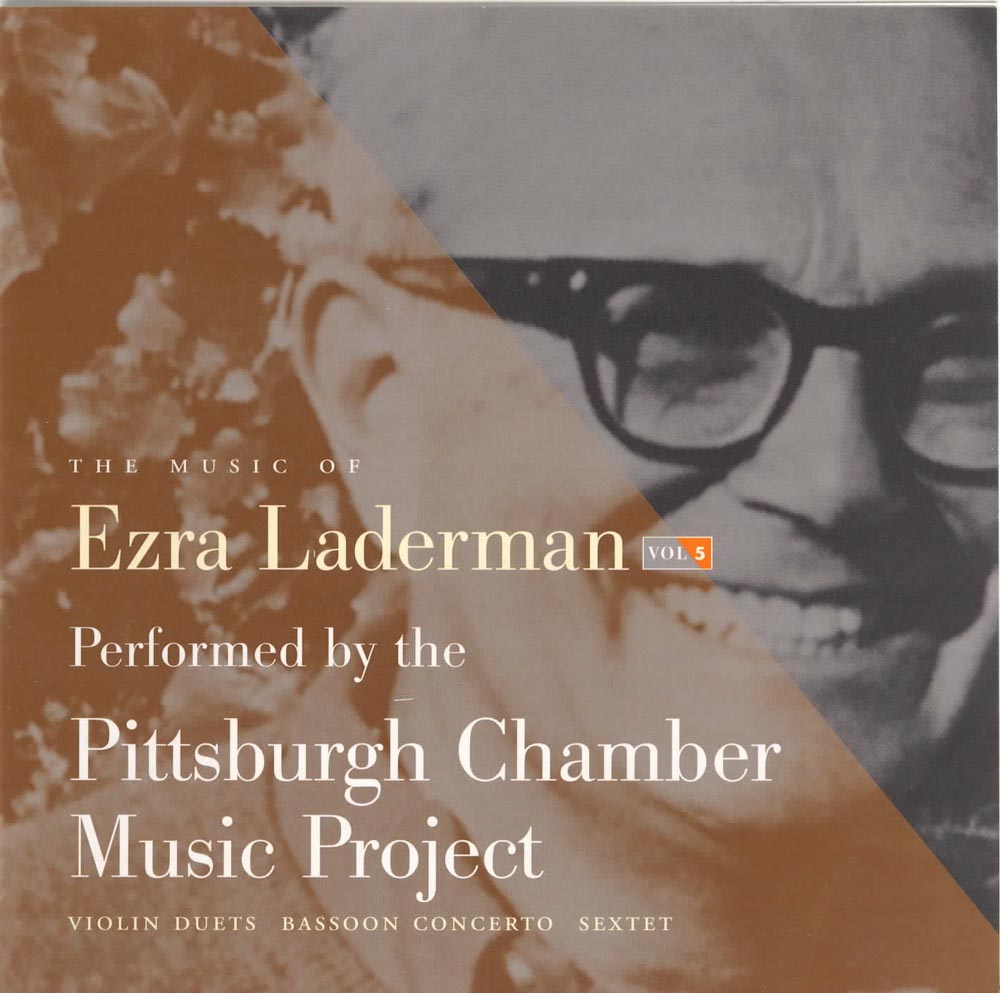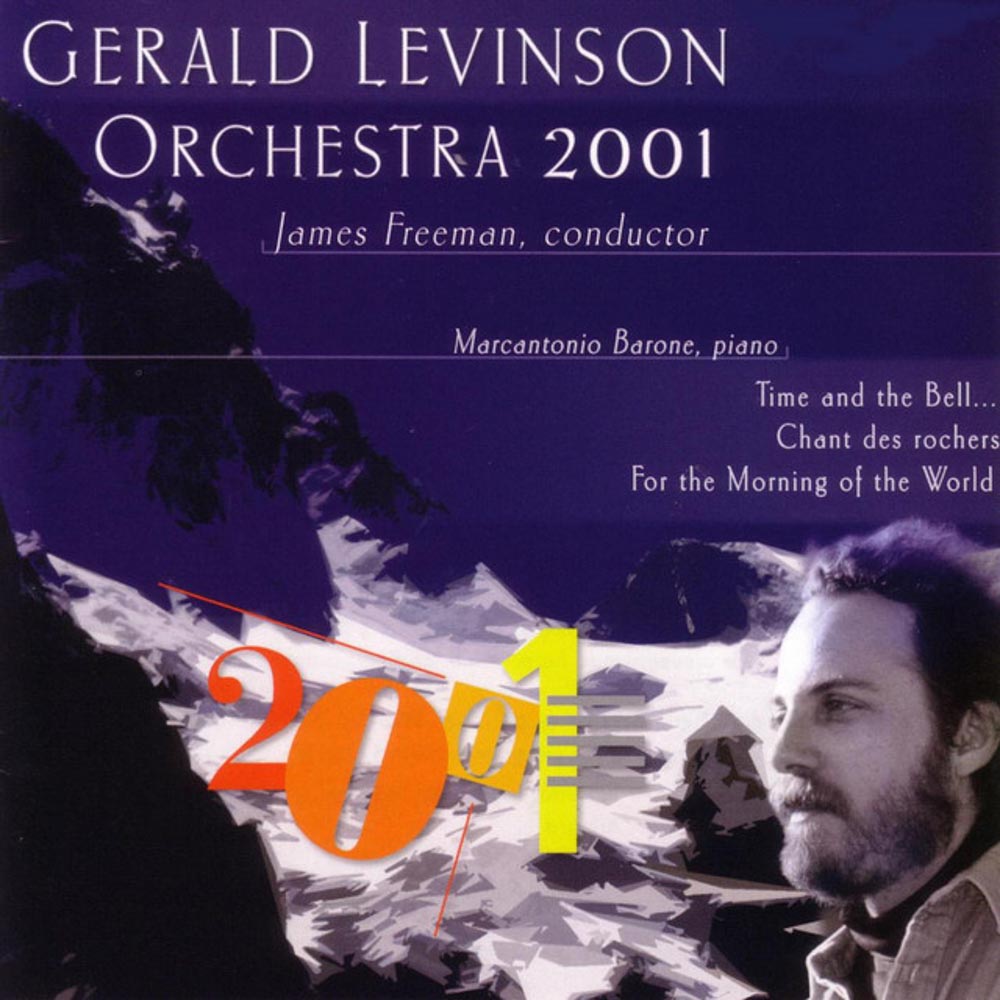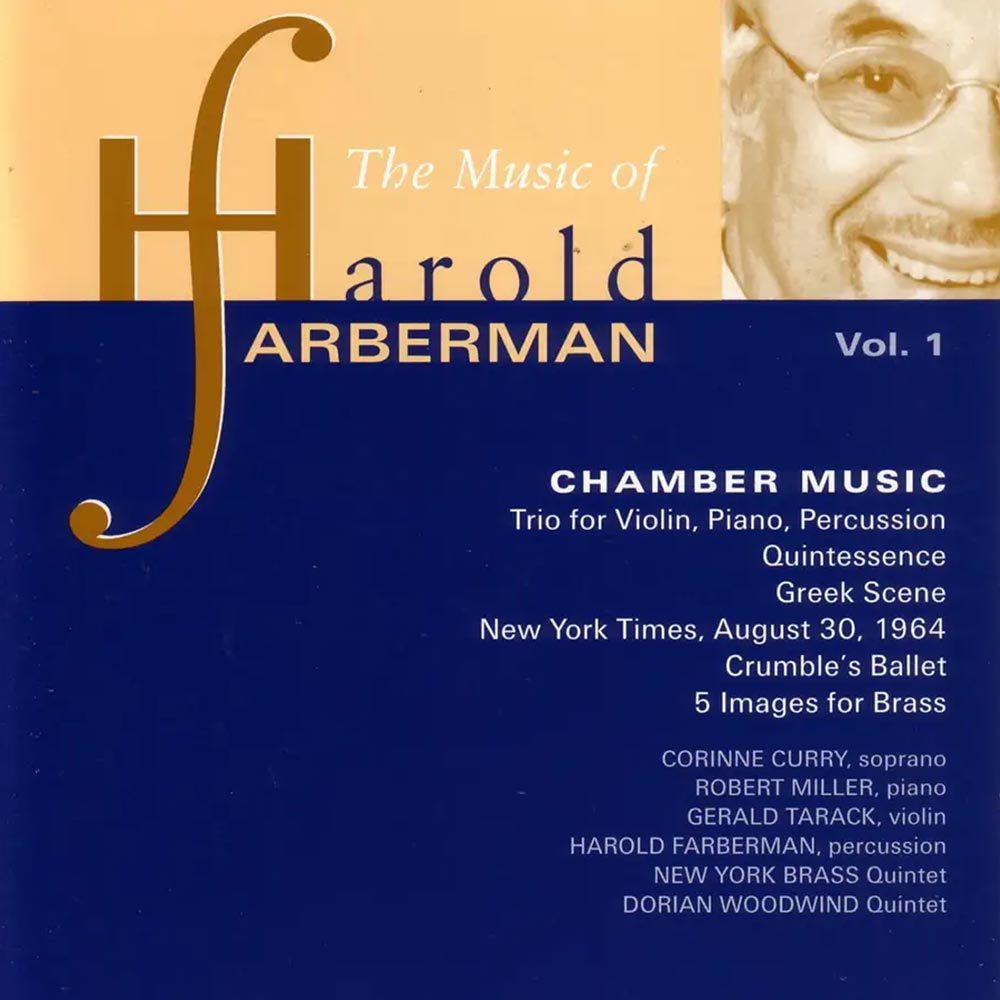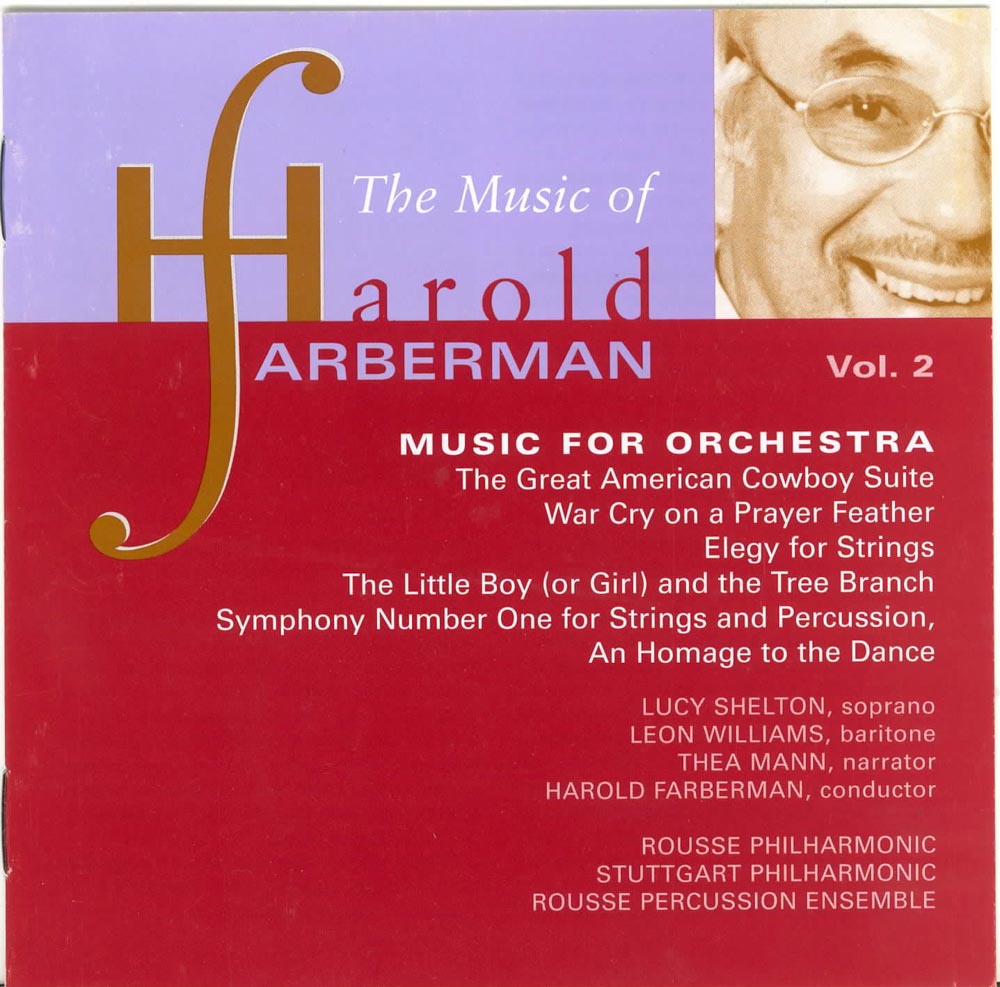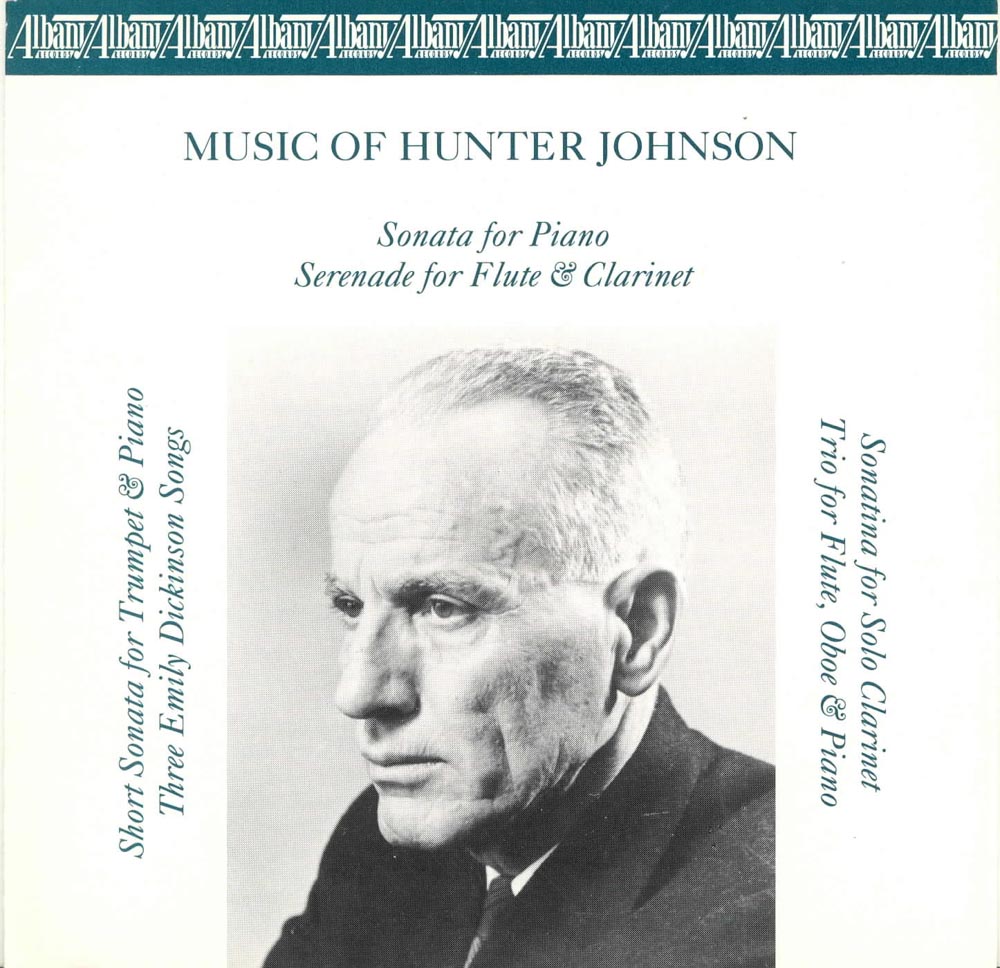Catalog #: TROY0538
Release Date: October 1, 2002ChoralAndrew Imbrie has enriched the American contemporary music scene for over five decades. This recording pays tribute to his legacy with performances of three compositions from the late 1990s. His fluency at the keyboard springs from his early training in piano with such teachers as Leo Ornstein, Olga Samaroff, Rosalyn Tureck and Robert Casadesus. These teachers (and a summer studying with Nadia Boulanger) nurtured his interest in theory and composition, but it was during his undergraduate years at Princeton that he found his most significant musical mentor, Roger Sessions. Imbrie's senior thesis, String Quartet # 1 (1942), won a New York Music Critics' Award in 1944 and was recorded by the famed Juilliard String Quartet. After military service during World War II, Imbrie followed Sessions to the University of California,. Berkeley and received his master's degree there. Upon graduation, Imbrie was offered a faculty position at Berkeley that he held until his retirement in 1991. For over four decades, Imbrie has served as a teacher and mentor for composers ranging across the stylistic spectrum from experimentalist Larry Austin to the mischievously "traditionalist" David Del Tredici. He has held visiting professorships at the University of Chicago, Northwestern University, New York University, and Harvard. About Spring Fever the composer writes: "This work was begun in Berkeley but completed in Chicago on November 26, 1996. Its title reflects, perhaps, my sense of the onset of winter in that city, and my yearning for spring, with its varying excitements and instabilities." Chicago Bells was commissioned by the McKim Fund in the Library of Congress. It was premiered there in May 2001, by the soloists heard on this disc. "This work was composed in 1997, while I was serving as guest professor at the University of Chicago. I would walk through the campus on my way to meeting with my students; and as I proceeded through the myriad quadrangles I would occasionally hear the sound of bells in the towers, echoing and clanging. This sound was the inspiration for the opening of the work and influenced it in various ways." Songs of Then and Now, settings of poetry by Robert Louis Stevenson, William Shakespeare, and e. e. cummings, explore the ebullience, disillusionment, love, and magic of growing up. "The title of this group of songs can have two meanings: one that draws attention to the variety of texts used; the other referring to the ages of the singers, who have just crossed the threshold and are now young adults. Then refers to vivid memories of recent childhood; now suggests a wide-open world of discovery."
Catalog #: TROY0258
Release Date: September 1, 1997ChamberAnthony Holland was born in Cleveland, Ohio in 1955 and studied at The Cleveland Institute of Music and Case-Western Reserve University. He studied with Donald Erb, Hale Smith and Leslie Bassett. Since 1982 he has been a Professor of Music at Skidmore College in Saratoga, New York. Holland composed his Piccolo Concerto to demonstrate that the piccolo could be used as an expressive solo instrument. Pohadka a Variace was composed and premiered in the spring of 1997. The title means fairy tale in Czech. The guitar pieces were composed for Joel Brown, the soloist who performs them on this disc. Intensity 51.5+ is a light-hearted reference to Varese's Density 21.5. The original piece was 51.5 measures long. The + means the soloist repeats the piece as many times as they feel necessary. The New England Poems was commissioned by Sandy Schwoebel, long-time editor of The Flutist Quarterly, for performance at the National Flute Association Convention in Boston in1993. The Violin Concerto was commissioned and premiered by the great Czech violinist Frantisek Novotny. The music of Anthony Holland will appeal to anyone who enjoys mainstream American music. It is accessible and tonal.
Catalog #: TROY0163
Release Date: August 1, 1995ChamberThis disc features a sampling of the chamber music of Arnold Rosner who was born November 8, 1945. He is a prolific composer whose works have been performed in the United States, Europe and Israel. Today, his works exceed 100. As the notes point out, "he has managed to steer clear, generally, of both the post serial avant-garde movement of the sixties and the minimalist movement that followed. His treatment of harmony and counterpoint, along with the occasional recourse to an ethnic, Middle Eastern flavor, places his music in the esthetic milieu of Paul Hindemith, Ernest Bloch, and Alan Hovhaness. Rosner is currently on the faculties of Kingsborough Community College and Staten Island College of the City University of New York, where he teaches both standard and ethnic music. Having composed since the age of nine, he received advanced degrees from the State University of New York at Buffalo while studying with Leo Smit, Allen Sapp, Henri Pousseur and Lejaren Hiller, a group from which in his own words, "I learned practically nothing." Of the works on this disc, "Of Numbers and Bells," was composed for two pianos in 1983, "Sonata for French Horn and Piano," was composed in 1979, "Sonata No. 1 for Violin and Piano," was composed in 1968 and revised in 1977, and "Nightstone" for tenor and piano was composed in 1979.
Catalog #: TROY0355
Release Date: November 1, 1999OrchestralThe composer writes: "This recording is of particular significance for me for two reasons. First, it marks one of the many happy collaborations I have enjoyed with the composer-conductor Edwin London and, through him, with the fine musicians of the Cleveland Chamber Symphony. It also, in the selection of works, reflects an important, almost forty year friendship I cherish with Luciano Berio, my former teacher and early mentor. The premiere performance of Metalepsis II (1971) was conducted by Berio. Madrigali (after Monteverdi-Berio) composed in 1977 refers constantly to Berio's fine transcription of Monteverdi's Il Combattimento at the same time as it relates many aspects of his own original music to that of his Italian predecessor. Triple Concerto (1998) carries the dedication "to Luciano Berio with love and gratitude."
Catalog #: TROY1476
Release Date: February 1, 2014ChamberComposer Bevan Manson has received commissions for both classical and jazz music from numerous ensembles including the Sierra Chamber Society and the San Francisco Symphony. He is a founding member of the Los Angeles composers' group Improvisatory Minds, an organization that provides a platform for concert music written by composers who have jazz as an extensive part of their musical backgrounds. A noted jazz pianist, Manson was director of UC Jazz at Cal Berkeleyand has served on the faculties of New England Conservatory, Berklee College and the Thelonious Monk Institute. This recording, the first devoted entirely to his music, combines his classical and jazz roots in a unique style that is complex but very tuneful.
Catalog #: TROY0158
Release Date: June 1, 1995ChamberChris Theofanidis was born on December 18, 1967 in Dallas Texas. He studied with Sam Adler, Joseph Schwantner, and Jacob Druckman. His father, Iraklis, was a classically trained pianist and composer from Greece. These are the basic facts. At Albany Records we feel we have an obligation to search out new, young composers and bring their music to you. This recording contains a wide variety of music written in an accessible, tonal idiom.
Catalog #: TROY0106
Release Date: January 1, 1994Chamber"All the works on this recording are from the late 1970s and early 1980s," comments Dan Asia. "They reflect my interest then I combining the energy of vernacular music (pop and jazz), with the structural and linguistic possibilities of contemporary classical music, and all of this refracted through the sonic possibilities suggested by the current nascent world of electronic music. While some of the works presented are solely electronic, and others are for acoustic instruments alone, my interest was in the cross fertilization that can occur between these genres." Dan Asia, composer-in-residence with the Phoenix Symphony, was born in Seattle, Washington in 1953. He has been the recipient of the most competitive grants and fellowships in music including a Meet The Composer-Reader's Digest Commission, a Guggenheim Fellowship, four NEA Composers Grants and ASCAP and BMI composition prizes. After receiving his B.A. degree from Hampshire College, where he studied music and European History, Mr. Asia attended the Yale School of Music, receiving the Master of Music degree. His major teachers include Jacob Druckman, Stephen Albert, Gunther Schuller, Isang Yun, Arthur Weisberg, Bruce MacCombie, Ron Perera, and Randall McClellan. He presently teaches at the University of Arizona in Tucson.
Catalog #: TROY1889
Release Date: March 1, 2022InstrumentalDaniel Palkowski is a composer, pianist/synthesist, educator, audio engineer and creative designer. He studied at the Manhattan School of Music and Columbia. He has taught at both of those schools as well as at the Tisch School of the Arts and Music at New York University. He works for Ernst & Young as a creative designer, specializing in audio and video production. His music has been commissioned by organizations such as the Westchester Philharmonic, Music from China, and MacMillan Digital. The compositions on this recording were created in the late 1980s and early 1990s. Pianist ShiLing Shih has performed throughout the U.S. and in Taiwan and has collaborated with husband Daniel Palkowski on many works and performances. Recognized as the world's premier pipa virtuoso, Wu Man is a soloist, educator, and composer who has given her instrument a new role in both traditional and contemporary music. Macedonian pianist Elena Atanasovska has performed in numerous concerts in Macedonia as well as festivals in Bosnia, Portugal, Spain, Serbia, and Kosova among others.
Catalog #: TROY1158
Release Date: December 1, 2009ChamberDonald Wheelock is the Irwin and Pauline Alper Glass Professor of Music at Smith College, where he has been a member of the faculty since 1974. His works include five string quartets, several pieces for solo instruments, eleven song cycles, and many larger ensemble and orchestral works. Among his awards are a first prize in a competition sponsored by the Hartford Symphony, a fellowship from the National Endowment for the Arts, and two from the Guggenheim Foundation. This compact disc, a retrospective recording of Wheelock's music, offers a wide-ranging survey of his music for chamber ensembles.
Catalog #: TROY1086
Release Date: May 1, 2009ChamberThis volume of Albany Records' series of the music of Edward Joseph Collins features first recordings of songs, piano solo works and the Piano Trio, Op. 1. The Illinois-born Collins died in 1951, leaving an oeuvre comprised of 12 major orchestral works, three piano concerti, a secular cantata, an opera, several chamber works, more than 20 songs and a dozen piano solo and duo scores.
Catalog #: TROY1156
Release Date: April 1, 2010InstrumentalNew remastering and annotation distinguish this reissue of a 1992 release on CRI with the addition of historic private recordings made by Gunnar Johansen of Collins' music. This adds to the existing seven volumes previously released by Albany Records of this Chicago composer's music.
Catalog #: TROY0267
Release Date: November 1, 1997OrchestralIt is an honor for Albany Records to introduce you to the music of the disgracefully neglected American composer, Edward Collins. During the first part of the 20th century, when American music was struggling to find a distinctive voice and a place on concert programs, Chicago composers were blessed with a nurturing champion in the person of Frederick Stock, the second conductor of the Chicago Symphony Orchestra. Among the gifted musicians who would benefit from Stock's fatherly care was Edward Joseph Collins. Between 1924 and 1943 his music was often heard at Chicago Symphony concerts with the composer himself appearing as soloist in his piano concerti or as guest conductor of his various Orchestral compositions. He was born in Joliet, Illinois to Irish-American parents. The youngest of eight musically talented brothers and sisters, he was giving piano recitals at the age of nine and at 14 became a pupil of the renowned pianist Rudolph Ganz. When Ganz moved to Berlin, Collins accompanied him where he studied with Max Bruch and Engelbert Humperdinck. He made his European debut in 1912 and in the fall returned to America, touring on a double bill with the great soprano Ernestine Schumann-Heink (Collins's sister, Kate Hoffman, was Schumann-Heink's accompanist for 35 years). As a result of the tour, Collins was engaged as the assistant conductor of the Century Opera Company in New York. In 1914, he became an assistant conductor at the Bayreuth Festival in Germany. During World War I, Collins served as a Lieutenant for the 88th Division in France. He entertained troops not only by performing but also by composing an operetta "Who Can Tell?" which General Pershing and President Wilson attended on opening night. After the Armistice, he returned to the concert stage. In 1919 he joined the faculty of the Chicago Musical College. In 1933 he moved his studio to the American Conservatory of Music and remained on their faculty until his untimely death in 1951. It is wonderful that we have musicians of the caliber of Marin Alsop and her great Orchestra giving Edward Collins's music the attention it deserves. Here is the music of a wonderful composer.
Catalog #: TROY0625
Release Date: September 1, 2003OrchestralEdward Joseph Collins was born in Joliet, Illinois and was the youngest of nine children all of whom were musical. He studied first in Chicago with Rudolf Ganz and then in Berlin with Max Bruch and Engelbert Humperdinck, among others. He returned to the United States in the fall of 1912 and began to concertize. During 1913/14, he was appointed assistant conductor of the Century Opera Company in New York. In 1914, he traveled once again to Europe where he was engaged as an assistant conductor at the Bayreuth Festival, where his duties also included playing the timpani. In August 1914, the outbreak of hostilities in Europe necessitated his return to America. When the U.S. entered the War, he began as an infantry private, but soon rose to the rank of Lieutenant. When Collins returned to Chicago, he resumed his performing career and married a young voice student named Frieda Mayer whose father was Oscar Mayer, the owner of the Chicago Meat Packing Company that bears his name. Erik Eriksson, Collins' biographer has written: "The music of Edward Joseph Collins deserves closer attention and more frequent performance. Collins was highly original in his organization and employment of ideas, in the flow with which they were assembled, and in the unforced introduction of American idioms to works that were conceived with great seriousness of purpose. With strength of character and courage that must be admired, Collins composed music that also exhibits an endearing capacity to convey genuine and enduring emotion." See also TROY267 for more of Collin's music.
Catalog #: TROY0630
Release Date: October 1, 2003OrchestralThis is the third release on Albany Records of the music of Edward Collins. (Irish Rhapsody) from 1929, is the fullest realization of Collins's thoughts on the Irish folksong "O! The Taters they are small over here!" a tune he used in several compositions between 1927 and 1932. In Hibernia, the composer's imagination, his gift for orchestral tone painting and his ability to establish a reflective mood are lovingly in evidence. No doubt Collins's Irish heritage manifested itself, permeating the nineteen-minute work with an atmospheric mixture of gaiety and wistful melancholy. While it reflects all the technical facility Collins had gained from his musical training, it is the antithesis of an academic piece. It is scored for a large orchestra. Considering Collins's training in composition and success as a concert pianist, his urge early on to tackle a piano concerto was not surprising. Ultimately, Collins wrote three concerti, manifesting growing assurance as a composer with numbers two and three. The first, which William Wolfram describes as a "pastoral" work, came before stylistic influences had jelled into something more personal. The first performance took place in December, 1924 under Frederick Stock and the Chicago Symphony Orchestra with the composer as soloist. On November 18, 1940, Collins reminisced in his journal somewhat enviously about his friend Alfred Wallenstein. Once a section cellist in the Chicago Symphony, "Wally" was invited by Toscanini to audition for the solo cello position with the New York Philharmonic. Collins wistfully remarks that his friend "took the job and shook the dust of Chicago from his shoes." Collins went on to note that Wallenstein later became music director of New York City's WOR radio station and then conductor of several concerts immediately following the Toscanini series. In the same journal entry, Collins wrote: "Wally asked me to make some arrangements for him and I intend to begin with 'Li'l David." The work heard on this recording was completed in 1940. Submitted by Collins in response to a Chicago Symphony Orchestra commission on the occasion of its Golden Jubilee, Lament and Jig was the sixth of a set of twelve variations written by a dozen different composers under the collective title, Variations on an American Folk-Song. Other composers included Leo Sowerby, John Alden Carpenter and Rudolf Ganz. The theme was "El-A-Noy, an Illinois pioneer recruitment song, perhaps selected by Frederick Stock who conducted the premiere on April 17, 1941.
Catalog #: TROY1210
Release Date: August 1, 2010OperaThe only opera composed by Edward Joseph Collins, Daughter of the South, is set on a plantation on the Potomac River, near Leesburg, Virginia. The composer also wrote the libretto, the dramatic action commencing on the day the Civil War began and ending when peace was declared. Pondering what would be an appropriate opera for an American composer, Collins drew on his life-long interest in the Civil War and created an opera using the love story of a Southern beauty with a Northern boy as the basis of the libretto. The music shares many identifiable qualities with Collins’ other compositions for large ensembles, yet also makes more direct use of music styles from the popular culture of the 1920s and 30s, especially jazz and blues.
Catalog #: TROY0641
Release Date: February 1, 2004ChamberThis is the first recording of Collin's songs and instrumental duos, including the 1933 Suite for Violoncello and Piano, a major addition to the repertoire for this combination of instruments. Born in Joliet, Illinois, Collins studied piano with Ganz in Chicago and composition with Bruch and Humperdinck in Europe. A 1912 Berlin debut and subsequent concerts in the USA and Europe earned strong critical praise. Collins was hired as an assistant conductor for the Bayreuth Festival in 1914; that engagement was ended by World War I and service in the US Army. After the War, Collins began a teaching career in Chicago, continuing to conduct, perform and compose. His music attracted the attention of Chicago Symphony Orchestra Music Director Frederick Stock, who conducted many of Collins's orchestral compositions. Those include a symphony, three piano concerti, and a secular cantata. Collins also composed dozens of songs, piano solo works and other chamber music. The songs presented on this CD were composed between 1917 and 1944. As a former opera house assistant conductor at New York's Century Opera and at the Bayreuth Festival, Collins understood voices and had a thorough appreciation for the best of them. Having coached many singers, he knew what to expect in regard to range, color, tessitura and expression. He did not, therefore, approach song writing as if composing for instrumentalists. A man who was an avid reader of the classics, he brought a literate acuity to his choice of texts and even wrote some fine ones himself; the best songs merit the attention of any sensitive singer.
Catalog #: TROY0650
Release Date: April 1, 2004ChoralThe motivation to compose a choral work on a grand scale seems to have arisen from a commission from New York's Society of the Friends of Music to Edward Collins. There is, however, no record of a performance by the Society. A microfilm copy of the score was found in the late 1980s by composer and choral conductor William Ferris. He conducted what may have been the first performance on June 2, 1989 in Chicago. The Society's commission likely prompted action by Collins on an idea that may have been percolating for some time, something that could encompass his feelings about nature and life. Inspiration was found in the Wisconsin countryside each summer at the cottage of his wife's family on Cedar Lake, or on the Door County Peninsula. By the time Collins addressed himself to his Hymn, choral works were no longer quite as fashionable as they had been in the 19th century. The score achieves a distinct grandeur, while Collins's own text reflects his familiarity with great writing: it is, if somewhat elevated and archaic in tone, literate and eloquent. Though the source scores are not clearly dated, the composer's journals indicate that the composition of Variations on an Irish Folksong was probably completed after the 1927 Irish Rhapsody and the 1929 Hibernia(Irish Rhapsody). These Variations are based primarily on "Oh! The Taters they are small over here!" the "potato famine" folksong that also is used by the composer, sparingly, in Hibernia. The earliest version of Cowboy's Breakdown for piano solo, is found in a music notebook. Collins initialed and dated the score December 10, 1935, near the title; above the final measure he wrote the date January 10, 1936. It is interesting to note that Aaron Copland's "cowboy" ballets, came after Collins's concise, though equally energetic, Cowboy Breakdown, published in 1938.
Catalog #: TROY0657
Release Date: May 1, 2004OrchestralIn his journal of November 7, 1939, Collins briefly notes that he is working on the score of the Ballet-Suite: The Masque of the Red Death. It was not completed until almost fifteen months later, and during that period, Collins often reflected in his journal about death. The passing of a favorite sister prompted him to question the nature of individual mortality. The Ballet-Suite was completed on January 29, 1940. Collins was not entirely pleased with it. In his journal he wrote: "Finished the 'Masque' at five-o-clock. I was terribly sick of it at the end, but I just had to finish it and I fear the Invocation Profane suffered, as it was the final fragment in the order of composition." Submitted as an entry for a competition sponsored by the Saint Louis Symphony Orchestra, Masque also caused its composer some other discomfort. He worried about the reaction of his former teacher and friend Rudolf Ganz. Two days after the completion, he was more positive, noting in his journal that "I wrote the Masque faster than anything in my life". Despite the composer's caveats, the lurid drama of Red Death prompted a vivid score, before which Collins included his synopsis of the story by Edgar Allen Poe (which is included in the program booklet). This CD likely contains the first of several orchestral and piano solo variations on the Irish "potato famine" folksong, O! The Taters they are small over here! On May 21, 1927, Collins's entry in his journal reads, "Only ten more days to complete the 'Irish Rhapsody'. The college orchestra will have difficult time learning the piece by the 20th of June." Students of the Chicago Musical College performed the premiere, conducted by Collins, then a member of the college's faculty. Collins mentions his Set of Four in two journal entries, referring to an Illinois competition that likely involved the Chicago Symphony Orchestra and its conductor Frederick Stock. "May 28, 1925 One day nearer to catastrophe. After hearing the rehearsal this morning I am certain my Set of Four has no chance in Evanston. Lord help me! I am discouraged today and don't know exactly what to do." Despite the competition results, these four short orchestral pieces are typically well-crafted and full of atmosphere.
Catalog #: TROY1230
Release Date: October 1, 2010ChamberWith the exception of the Six Valses Caractéristiques, these are the first recordings of these compositions by Edward Joseph Collins. Born in Illinois, Collins studied piano with Ganz in Chicago and composition with Bruch and Humperdinck in Europe. Collins was hired in 1914 as an assistant conductor for the Bayreuth Festival, a brief engagement ended by WWI. After the war, his music attracted the attention of Frederick Stock, who conducted many of his orchestral compositions with the Chicago Symphony Orchestra.
Catalog #: TROY0595
Release Date: October 1, 2003ChamberEdwin London's music, sometimes literary or sacred, often theatrical, and at times humorous, is the product of his broad experience in diverse styles. London has been a major figure in the field of new music for more than 40 years. Best described as "a champion of new American music" he has formed two highly acclaimed ensembles: Ineluctable Modality, a new music choral ensemble in 1968, and the Cleveland Chamber Symphony in 1980. As a composer, conductor, teacher, administrator and persuasive advocate for the value of music as a civilizing force, his influence has been extraordinary. Born in Philadelphia, he began his career with characteristic disregard of rigid musical categories, as a horn player in both symphony orchestras and the Oscar Pettiford jazz band. Everything London has done in his long career has reflected his ability to move easily between the worlds of "concert hall" and "popular" music - with occasional stops at places in between.
Catalog #: TROY1031
Release Date: July 1, 2008ChamberThe moods of the works on this survey of Eleanor Cory's chamber music range from serious introspection (Three Songs) to playful exuberance (Chasing Time). Beginning to be recognized as a major force in contemporary music, Ms. Cory has received awards from the National Endowment for the Arts, the Aaron Copland Fund and the Fromm Foundation, among many others. Her music is performed by orchestras and ensembles ranging from the Gregg Smith Singers to the New Jersey Symphony to Earplay. Ms. Cory is on the faculty of the Mannes College of Music Prep Division and Kingsborough Community College.
Catalog #: TROY0399
Release Date: October 1, 2000ChamberEzra Laderman writes: "The world I grew up in living in Brooklyn, always close to Ebbets Field and the Children's Museum, consisted of all those things kids did as first generation Americans. To that heady mix there was, as well, music. My parents, Isidor and Leah, were born in Galicia, Poland; came to the United States early in the 20th century, met, married, settled in Brooklyn, and when I arrived June 29, 1924, there was an upright Worthington piano in the apartment and my brother Jack practiced on it daily. When my younger brother Gabriel arrived in 1929, I was already deeply involved in music. When I was three I heard my first children's concert at Carnegie Hall led by the debonair Ernest Schelling. During the height of the depression I used to sit next to the fountain of the Sculpture Court at the Brooklyn Museum while the WPA Orchestra performed. On Saturday nights I would occupy an empty box overlooking the stage at the Brooklyn Academy of Music as some musicians from the pit Orchestra ate sandwiches and drank Chianti as the Salmaggi Opera Company performed Italian repertoire. On Friday afternoons at school we would hear Walter Damrosch take us on musical journeys over the airwaves. When we finally got our Atwater Kent radio, Sunday afternoons belonged to the New York Philharmonic (What a difference between children growing up then and children growing up now! Is it any wonder our classical music is in such trouble today?) One day when I was six, I was brought to the Brooklyn Community Music School, just down the street from BAM and suddenly my musical education in the guise of the Dalcrosse method began. This musical world competed with growing up a city boy, never knowing how desperately poor we were, going (on scholarship) to the Ethical Culture School, where learning Greek history was essential, moving, one step ahead of the landlord, to seven apartments the first decade of my life, and having the extraordinary sense that everything was possible. At four, I was improvising at the piano; at seven, I began to compose music, writing it down. I hardly knew it then, but I had at a very early age made a giant step to becoming a composer."
Catalog #: TROY1192
Release Date: June 1, 2010ChamberThe nine recordings of Ezra Laderman's chamber music on Albany Records are now offered in a slipcase edition at a special price. Included are his string quartets, music for piano, and chamber works for various instrumental ensembles. Performers such as the Cassatt String Quartet, violinist Erick Friedman, and flutist Ransom Wilson offer critically acclaimed performances of this distinguished American composer's music. Taking 10 years to complete, this series offers a comprehensive survey of Laderman's solo instrumental and chamber music.
Catalog #: TROY0434
Release Date: May 1, 2001Chamber"When I was accepted as a student at the High School of Music & Art, created in 1934 by Fiorello LaGuardia, mayor of New York, my family decided to move a block away from the school in Manhattan. The move to 492 West 136th Street was significant because it brought us across the street from Lewisohn Stadium, the summer home of what was essentially the New York Philharmonic. It also brought me to within a fifteen minute walk of the old Juilliard School of Music. What precipitated the move was that living in Brooklyn we were one and one half hours by subway from the High School. I came home from school the first day in September 1936 lugging a full size double bass. The next morning my resolute mother paraded me to confront Alexander Richter, head of the music section at the School. Before my mother uttered a word, he calmly took away the double bass and handed me a flute." What an amusing incident from the life of the wonderful American composer Ezra Laderman. Here is another one. "When I reflect over the nineteen thirties and how I was shaped in those early years, the record library at Juilliard looms awfully large. For the first time in my young life I was able to listen to recordings while reading scores of the main body of music. Whether it was Sibelius's Second or the Grosse Fugue, it was absorbed with enormous excitement. I would spend countless hours listening, my ears covered by huge ear phones, my eyes buried in the print. Over and over again, score in hand, I would listen while the librarians, wonderful in helping and guiding me through this newly discovered wonderland looked on with amusement. I was hooked." A fine composer was born and you can now listen to his chamber music on this new CD. What goes around certainly does come around. (Hear also volume 1, TROY399.)
Catalog #: TROY0473
Release Date: January 1, 2002ChamberIn the seventies and again in the eighties, Ezra Laderman had issued weighty statements, entire worlds for two violins, viola and cello. The first was his three-movement Fifth Quartet, composed in 1976; it lasts three quarters of an hour, incorporates historical models including a sonata form and a Baroque dance suite, and draws on "a rich palette of composing: tonal, serial, aleatoric." But its size makes the Laderman Fifth Quartet impractical to program in its entirety. More often, quartets program the work's movements individually, finding each to be a coherent and satisfying statement. This performance history of the Fifth Quartet led Laderman to re-think his approach to the medium and to multi-movement compositions. A trilogy of single-movement quartets - the Sixth, Seventh, and Eighth - comprised the next such weighty statement. The Sixth Quartet was complete by December 1980; the double bar line was put on the Eighth almost five years later, the composer having reached sixty-one years of age. The composer regarded these three quartets as "the payoff from this mother lode" of the Fifth. Each of the three was performed many times before the first performance of the entire trilogy took place, in May 1989 at Merkin Concert Hall's Music Today series in New York City. There the performers - the Audubon, Blair, and Colorado Quartets - gathered to celebrate Laderman's 65th birthday.
Catalog #: TROY0454
Release Date: September 1, 2001ChamberCellists don't normally travel in herds. Usually, when playing chamber music, they individually seek out their natural partners. In certain environments, though, they do gather: to comprise the cello section of a symphony orchestra, or to learn as pupils of a master teacher. The development of such groups takes place more naturally in the cello studio of a conservatory teacher. There the teacher may view the ensemble as a vehicle to share musical and technical ideas at once with many of his students. Take the Yale Cellos, for instance. For more than four decades their technique has been refined, their sound shaped by Aldo Parisot, cello professor at the Yale School of Music. The trilogy of works, Aldo, Simoes, and Parisot heard on this recording, comprise the most significant contribution to the cello repertory since Villa-Lobos wrote his two works for cello ensemble. When Laderman composed Aldo, the earliest of his three works for the Yale Cellos, he had heard the group perform with regularity for six years. So he knew already the special capabilities of multiple cellos, with its range of highs and lows approximating the vocal range of a chorus, its center of gravity pitched lower than that of a string orchestra. When Aldo was composed, Laderman did not yet know that he was embarking on a three-work cycle. Only later did Laderman regard the piece as the first in a series, the title for each work drawn from a different one of Parisot's names.
Catalog #: TROY0537
Release Date: November 1, 2002ChamberFor five decades Ezra Laderman has been privileged to be performed by the musicians of Pittsburgh. The Pittsburgh Symphony has collaborated with him a number of times; in 2003 the orchestra will feature its bass clarinetist, Richard Page, in a new Laderman concerto that it has commissioned. Other of the city's ensembles over the years have been equally staunch supporters of the composer's work. The newest of them, The Pittsburgh Chamber Music Project, commissioned and premiered Laderman's 1997 Sextet for English horn, bass clarinet and string quartet. Laderman is an attentive collaborator. He gets to know the musicians as people, and in composing his works often chooses the performer's personalities as a point of departure. Certainly he has done so in a number of his string quartets, a genre for which he is deservedly celebrated. The composer's Violin Duets were composed in 1998. Like the works by Bartok and Berio, they are miniature meditations, each composed in a single session, a day, a few hours, that performed together accumulate artistic weight through comparison and contrast. A year after graduating from Columbia University in 1952, Laderman began work on a Concerto for Bassoon and Strings. He completed the concerto in 1954, and it was given a reading by Bernard Garfield (who, later, for many years, was the principal bassoonist of the Philadelphia Orchestra) and the National Symphony under Leon Barzin. But, aside from a student performance at Juilliard, the work remained on the shelf for more than forty years. Laderman completely overhauled the work in 2000 and the result is what is recorded here.
Catalog #: TROY0742
Release Date: March 1, 2005OrchestralThe conductor James Freeman writes: "When a young composer named Gerald Levinson applied for a position in Swarthmore College's Music Department (of which I was then acting chair) more than 20 years ago, I was struck by an extraordinarily luminous, beautifully written piece called in dark which he had included in his portfolio. That piece and several others in the same folder showed so much imagination, feeling for color, and downright compositional skill that I had no doubt this was the composer we were looking for. A heartfelt and passionate letter from Olivier Messiaen only added to my departmental colleagues' and my own conviction that Levinson must be "the real thing." We were counting on the new person to teach the major part of our theory cycle, and young Levinson had absolutely no teaching experience of any kind. Nonetheless, we took a chance and hired him. Anyone who wrote such wonderful music had to be a great teacher and he was. When Orchestra 2001 was founded in 1988, it was the music of George Crumb (which is currently being recorded for Bridge) and Gerald Levinson that I especially wanted to bring to new audiences." The critic Paul Griffiths has written: "What must thrill anyone who comes in contact with Gerald Levinson's music is its sheer joy in sound, and the decisiveness with which it sings or dances its way through time.... In sympathy with sound, in sympathy with time, Levinson's music is close to the natural phenomena on which all music depends. Two things spring from this. One is that his music can easily evoke other natural phenomena: the sea, the stars, rugged landscapes. The other is that this music is in tune with other kinds of music from around the world. Levinson's resources are classical western: he writes for the symphony orchestra, for the piano, and for chamber groupings of conventional instruments. His disciplines, too, are those of the western tradition. But the east was present in his music even before his first trip there. His works, right through his career so far, exist on companionable terms with Mahler's music and with Bali's, with Ravel's and with Japan's, with Messiaen's and with India's, with Stravinsky's and with China's, with America's symphonic tradition and with Tibet's slow melody. Out of all this he is creating, piece by piece, a world of his own."
Catalog #: TROY0402
Release Date: June 1, 2000ChamberHarold Farberman’s career as a conductor has overshadowed his achievements as a composer. In fact, while a member of the Boston Symphony Orchestra, Farberman turned first to composition as a further creative outlet, which in turn led to his more visible conducting career. From the mid-fifties onward, when he composed his first work, Evolution, for soprano, French horn and seven percussionists, Farberman has never stopped creating music. Farberman was born in New York City’s Lower East Side. Coming from a family of musicians (his father was the drummer in a famous 1920’s Klezmer band; his eldest brother was also a drummer) it seemed inevitable that he pursue music as a career. After graduating from Juilliard on a percussion scholarship in 1951, he immediately joined the Boston Symphony Orchestra percussion section. With a performer’s knowledge of percussion instruments and a dissatisfaction with their conventional treatment, he became an early advocate for the use of percussion sonorities as a major voice in compositional structures. His very first work, Evolution, written in 1954 before he began formal studies in composition, is scored for over 100 percussion instruments and has been recorded four times, once by Leopold Stokowski. Note the special way we are featuring Mr. Farberman this month; not only as the conductor of the fine Bazelon orchestral disc (TROY370), but here he also is represented as a composer.
Catalog #: TROY0497
Release Date: December 1, 2001OrchestralHarold Farberman writes: "Unlike Volume One (Albany TROY402) which was entirely devoted to early chamber music, Volume Two contains music for orchestra. The musical agenda is different for each work: a film score, a song cycle, a short elegy for strings, a fable for children and a symphony for percussion and strings. Atonality and tonality, including a nod to the American "pop" culture of the 50s, are employed in contrasting structures and differing styles. Incisive rhythms and a full color palette remain a constant. The film, The Great American Cowboy won the Academy Award in 1973 for the best documentary. The film contained over sixty minutes of music for symphony orchestra. War Cry was a bicentennial commission from the Colorado Springs Symphony . It was premiered on November 11, 1976 by the orchestra. Elegy for String Orchestra was written in memory of my brother Leo and is dedicated to his memory. I conducted the premiere in Carnegie Hall on March 14, 1965. Tree Branch was premiered on March 7, 1998 by the Garden State Philharmonic. For a long time my colleagues have complained about the paucity of original works for children's concerts that include the conductor as the central figure. I searched for but could not find a suitable text until I looked at a branch of a tree and envisioned a baton. The rest, including the text, was easy. The intent of my Symphony was to unite the special sound qualities of a large percussion section with strings, and to acknowledge the role of percussion in our "pop" culture. The Symphony might be labeled a "cross-over" work and perhaps it is. Louie Bellson, Tito Puente, Jascha Heifetz and the Budapest Quartet shared my record shelf. However, the term "cross-over" was not yet in our vocabulary in 1957."
Catalog #: TROY0061
Release Date: November 1, 1991ChamberHunter Johnson was born near Benson, North Carolina in 1906. He attended the University of North Carolina at Chapel Hill and the Eastman School of Music, graduating from the latter institution in 1929. He did graduate work with Bernard Rogers at Eastman, and then worked with Alfredo Casella in Rome. He is perhaps best known for the Piano Sonata recorded here and for his music for the Martha Graham ballets: Letter to the World and Deaths and Entrances, which have had hundreds of performances in the United States, Europe and Asia given by the Graham Dance Company. His music has been variously described as neo-classic, neo-romantic and nationalist. It is most likely a combination of all three. Throughout most of his career, Johnson has been deeply involved in teaching, having taught advanced theory and composition at Cornell University, and at the Universities of Michigan, Manitoba, Illinois and Texas. In June, 1991, Hunter Johnson was named Composer Laureate of North Carolina, the first such award to be designated by the state. This disc, now at mid-price, is a wonderful introduction to the music of this sorely under-recorded American composer.
Catalog #: TROY0987
Release Date: January 1, 2008ChamberBorn in Cienfuegos, Cuba, Ileana Perez Velázquez earned her degrees from the Higher Institute of Arts, Havana, in 1987. When she moved to the United States in 1993, she was already receiving acclaim as one of the bright lights of Cuban composition, having won several awards. She would later continue her studies at Dartmouth College and Indiana University, where her teachers included John Appleton, Charles Dodge, Claude Baker and Eugene O'Brien. She writes music that, while challenging for both performer and listener alike, is deeply expressive and accessible; her music may be uncompromising in its demands, but it also remains intensely dramatic and poignantly evocative. What's more, her rich harmonic language and rhythmically intricate, multi-layered textures reveal a true debt to her Cuban heritage.
Catalog

©2024 Albany Records. All rights reserved. | Privacy Policy | Website by PARMA Creative.
